#bsd nikolai analysis
Explore tagged Tumblr posts
Text
Bungo stray dogs fans will really watch a character get cut in half, drowned, shot in the head, blown up and have characters prepare for another character's funeral and be like i wonder how they survived because they couldn't have possibly died.
#not even IF#but HOW#and thats not even the crazist part#the craziest part is that we're always right#bungo stray dogs#bsd theory#bsd analysis#bsd anime#bsd manga#anime and manga#manga#bsd chuuya#chuuya nakahara#bungo stray dogs chuuya#bsd dazai#dazai osamu#dazai being dazai#bungo stray dogs dazai#bsd fyodor#fyodor dostoevsky#fyodor dostoyevsky bsd#bungou stray dogs fyodor#bsd akutagawa#akutagawa ryuunosuke#bungo stray dogs akutagawa#bsd higuchi#higuchi ichiyo#bsd nikolai#nikolai gogol#mypo)t
954 notes
·
View notes
Text
Defying God - a parallel between Fyolai and Stavrovensky
The Demons brainrot is taking over, and you know what happens when I acquire a new interest: my brain WILL find a way to connect it to my other interests, whether I like it or not!! And this is essentially what it's about xD I've come here to present a parallel I found between Fyolai (Fyodor & Nikolai from BSD) and Stavrovensky (Verkhovensky & Stavrogin from "Demons" by Dostoevsky). Before I start I want to clarify a few things:
• I don't think these two pairings are similar, I just love picking up any crumbs of connections I can find between my interests, even if it'd count as reaching.
• This interpretation (in either character's case) is in no way "the only true way of looking at it". It's merely one interpretation out of many and I chose to focus on just a few aspects out of the many others there are to explore in these complex characters.
• Feel free to add onto or disagree with anything I say! I'm interested in your thoughts :D
WARNING: There will be spoilers for Bungou Stray Dogs and Demons.
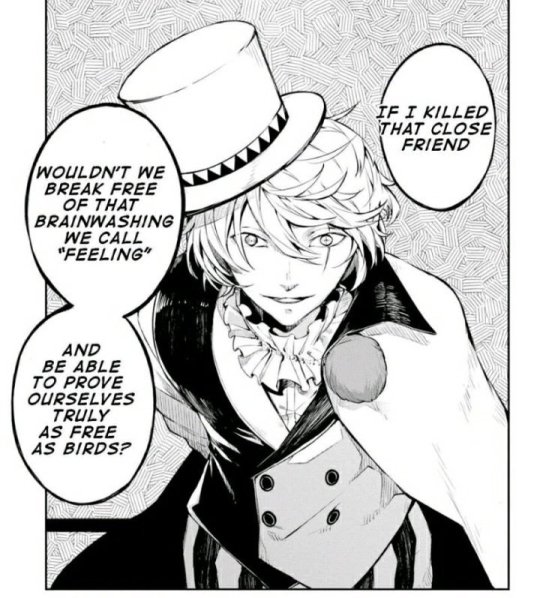
The reason Nikolai wants to kill Fyodor is because he feels affection for him. Emotions are a prison to him, and he basically seeks the opposite of what his emotions make him want to do. Thus, in the face of affection, which makes you want to be closer and wish the best for your friend, he does the opposite and decides to kill said friend, going directly against his feelings in an attempt to prove free will. But here I want to focus more on the "You want to defy God in order to lose sight of yourself" part, specifically the bit about God.
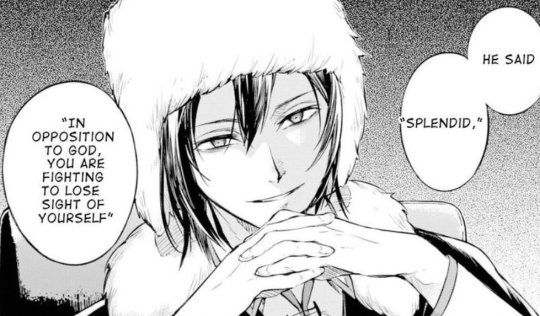
One part of my interpretation is that Nikolai associates God with control. If there is a God who controls all, how can there be a free will? He wants to go against Him and His creations (the human mind, morality, etc.) to prove that it's possible. But God is very abstract - the idea of God is influential but varies depending on cultures, etc. For this point, I'll use the example of the biblical God, or, more specifically, some attributes commonly assigned to the idea of God:
• omnipotence (all-powerful)
• omnipresence (all-present)
• omniscience (all-knowing)
What I am leading up to is the fact that these traits can, in one way or another, be applied to Fyodor. Fyodor's character represents everything Nikolai wants to defy. Nikolai hates control; he wants to fight the idea of God and prove the possibility of complete independence. Fyodor (though not in a "direct" way) could be seen as a symbol for God. He knows everything, he is always present (metaphorically and sometimes literally, the way he spawns sometimes I swear-), and he seems to control everything. Only few people actually see him, but he pulls the strings behind the scenes, and his power is felt everywhere. For Nikolai, to kill Fyodor is not just a protest against his feelings of affection, but can also be a symbolic act of defying "God", of killing "God", by killing Fyodor.
This is supposed to be very symbolic and not taken literally. I feel the need to repeat this because I personally dislike the notion of Fyodor as a literal God (and disagree with the idea of him having a God-complex), so this is merely about the God-like traits he possesses, like a "substitute" for the idea of God, and how it interacts with Nikolai's philosophy. (I've also exaggerated some points for the sake of simplification - for example, I don't actually believe Fyodor is in control of absolutely everything, etc.)
Moving onto Demons:
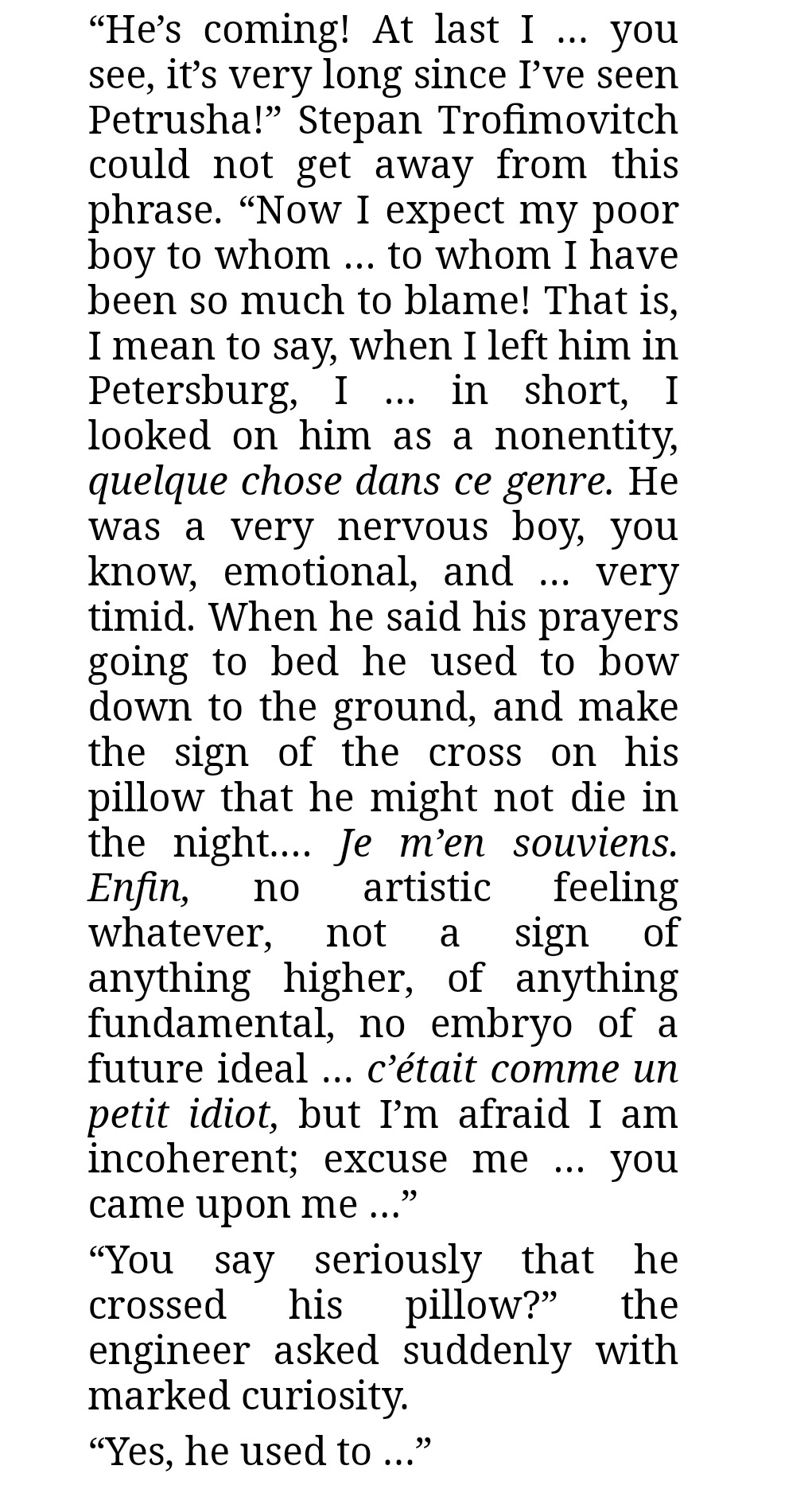
Pyotr Verkhovensky grew up religious and (assuming based on Stepan's description) with a fear of God.
Now he's an atheist and very anti-religious. He plans to overthrow society, and destroying religion + everything it preaches is part of that plan. But interestingly enough, he picks not himself as the official future "ruler", but someone else: Nikolai Stavrogin. He chooses Stavrogin to be the role of the leader in Verkhovensky's ideal society. But not exactly the "leader" in the traditional sense, because he wouldn't necessarily give Stavrogin all the power. He would simply use him as a "pawn" (for lack of a better word) while himself pulling the strings behind said society. With that, Verkhovensky puts someone else above himself, in a God-like position, but he wants to do it while still keeping full control over Stavrogin. By doing so, he would overcome his childhood fear of God because instead of being controlled by God, *he* will control God.
(Same case here, not the literal God, but the character who he assigns God-like traits to.)
I am undecided (with both Nikolai's and Verkhovensky's character) whether this could be read as a solely subconscious intention or if it would make sense as a conscious one as well. Given that both have a different "main" goal (Nikolai focuses on emotions and Verkhovensky on the revolution) I lean more towards thinking it's subconscious (if present at all - like I said, just interpretations!)
It doesn't help that Verkhovensky describes his vision of Stavrogin's leadership as "hidden": Everyone believes in him and his power, but only very few people are said to actually have laid their eyes upon him. When I first read this part, I was honestly reminded of Big Brother from Orwell's 1984, but eventually realised that similar things can be said about God as well.
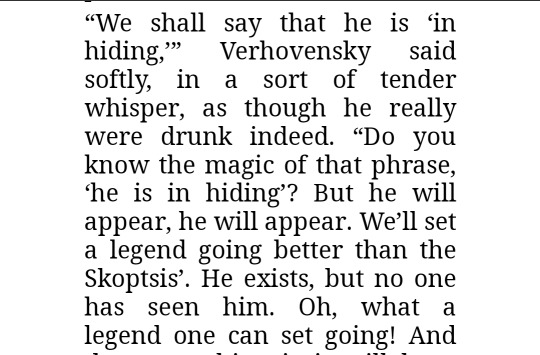
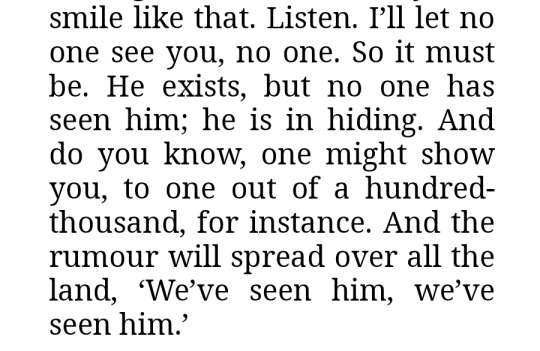

While these are parallels, they don't come without differences. Nikolai needs Fyodor dead, Verkhovensky needs Stavrogin alive. Nikolai wants to kill Fyodor for a sense of freedom, Verkhovensky wants to keep Stavrogin for a sense of control. Yet both symbolic goals are bound to fail:
Fyodor turns out to be unkillable, and Stavrogin ends up dead.
At the end, "God" stays untouchable.
#they make me so ill#I stay up nights thinking about them#fyolai#fyodor dostoevsky#nikolai gogol#bungou stray dogs#dostogol#fyogol#bungo stray dogs#bsd#demons#demons dostoevsky#verkhovensky#pyotr verkhovensky#nikolai stavrogin#Бесы#Достоевский#Верховенский#Пётр Верховенский#Николай Ставрогин#Not a ship post but this sure is fueling my enjoyment of their relationship#I need to dissect and study their dynamic under a microscope#Thank you Dostoevsky#Btw This is my first analysis post here if I'm not mistaken#I'm nervous please be nice#I will draw them now
878 notes
·
View notes
Text
BSD MEN AND MBTI TYPES [+ their darlings]

So, I’m not sure how many are aware of what MBTI is, but I got a few requests on making an analysis about this for BSD MEN and incorporating their ideal type! darlings’ MBTI types as well, so I did. (I kind of promised that I would do it, so now is the time.)❤️
I want you to know, it wasn’t intentional to place one type as the ideal match for multiple characters. I thought it through thoroughly and did my best to remain as logical and diverse in MBTI types as possible. It’s just that strong Fe users are often a good match for broken people and…well…BSD men are mostly broken.
Here is a brief explanation what MBTI and cognitive functions are, for those who are not familiar with it. If you are familiar with it, you can simply skip to the next paragraph under the thinner cut.❤️

Explanation MBTI: The Myers-Briggs Type Indicator (MBTI) is a tool used to understand different personality types based on how people prefer to interact with the world and make decisions. Created by Isabel Briggs Myers and Katharine Cook Briggs, it’s based on ideas from Carl Jung about how people think and behave. MBTI types are 16 four-letter combinations such as INFP or ESTP, that are designed with each 4 primary cognitive functions that are being used frequently by each person. There are 8 cognitive functions, and we all use all of them, however, 4 are always the most comfortable and prominent.
Detailed Explanation of Cognitive Functions: Cognitive functions are specific mental processes that shape how we understand and interact with the world. Each function has a particular role and works in conjunction with others to influence personality. Here’s a closer look at each of the eight cognitive functions:
1. Extraverted Sensing (Se): This function involves focusing on the present moment and taking in information through the senses. People who rely on Se are very aware of their surroundings and enjoy engaging with their environment actively. They tend to live in the moment and respond to immediate sensory experiences.
2. Introverted Sensing (Si): Si involves recalling past experiences and using that information to understand the present. People with strong Si focus on details and how things have been done before. They rely on their memories and internal impressions to make sense of the world.
3. Extraverted Intuition (Ne): Ne is about exploring possibilities and seeing connections between different ideas. Those who use Ne are good at brainstorming and considering multiple potential outcomes. They enjoy thinking about future possibilities and spotting patterns that aren’t immediately obvious.
4. Introverted Intuition (Ni): Ni involves forming insights and understanding future implications based on internal reflections. People with dominant Ni often have a clear vision of how things might unfold and focus on long-term outcomes and deep, conceptual understandings.
5. Extraverted Thinking (Te): This function focuses on organizing and structuring the external world based on logic and efficiency. People who use Te prioritize objective criteria and practical solutions, often seeking to improve systems and achieve measurable results.
6. Introverted Thinking (Ti): Ti involves analyzing and refining ideas based on internal logic. Individuals with strong Ti prefer to understand concepts deeply and develop their own internal frameworks for how things should work. They value precision and consistency in their thoughts.
7. Extraverted Feeling (Fe): Fe is concerned with understanding and responding to the emotions and needs of others. People with strong Fe are focused on creating harmony in their social environments and are sensitive to the feelings of those around them. They often work to ensure that everyone’s needs are met and that social interactions are smooth.
8. Introverted Feeling (Fi): Fi involves making decisions based on personal values and internal emotional responses. Those with dominant Fi focus on staying true to their own principles and beliefs. They prioritize authenticity and personal integrity, making choices that align with their internal values.
Each MBTI personality type has a specific hierarchy of these functions. The dominant function is the primary way a person interacts with the world, while the auxiliary function supports it. The tertiary function is less developed, and the inferior function is the least developed and often a source of stress or growth.

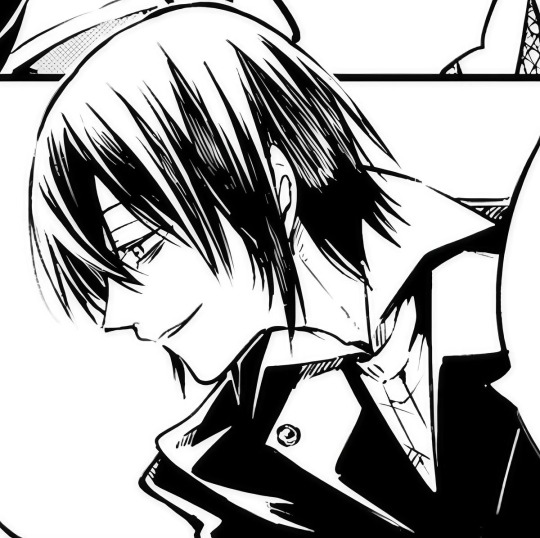
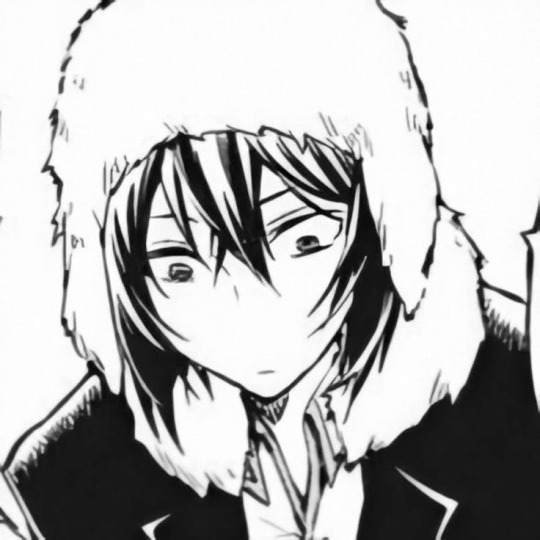
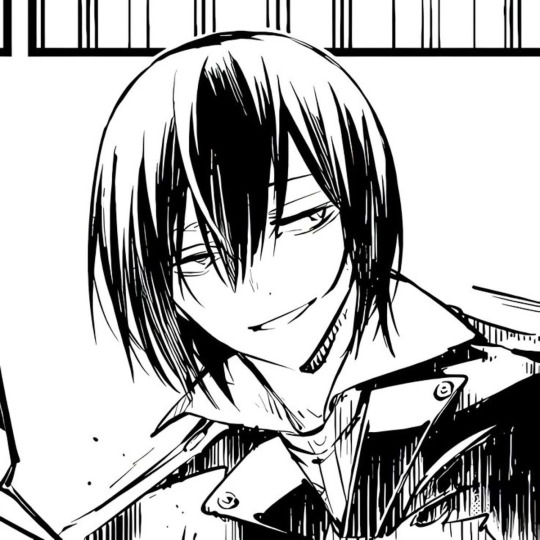
FYODOR DOSTOEVSKY
INTJ (The Mastermind/Architect) - Ni > Te > Fi > Se
Fyodor's dominant function, Introverted Intuition (Ni), reveals itself in his visionary, long-term thinking and his deep strategic foresight. Fyodor operates on a plane that transcends the immediate and the obvious.
He sees patterns, connections, and the potential outcomes of his actions far into the future, often perceiving the world in ways that others simply cannot comprehend.
His overarching goal—to cleanse humanity of its sins—demonstrates a profound understanding of abstract concepts and an almost prophetic ability to see beyond the present, traits quintessential to a dominant Ni user.
Next, we have Extroverted Thinking (Te), Fyodor's auxiliary function, which he employs with ruthless efficiency. His actions are driven by a need to impose order and structure on the chaotic world around him, aligning perfectly with Te's desire for effectiveness and productivity.
Fyodor’s methods, while morally ambiguous, are meticulously planned and executed with precision. This function supports his Ni visions, allowing him to implement his grand schemes with logical, calculated steps.
His ability to manipulate people and situations to his advantage is a direct result of Te’s influence, prioritizing objective outcomes over personal feelings.
His tertiary function, Introverted Feeling (Fi), is less overt but still crucial to understanding his character.
While Fyodor presents a cold, calculating exterior, his actions are ultimately guided by an internal value system—no matter how warped it might seem.
Fyodor's Fi manifests in his unwavering belief in his mission and his disdain for those who fail to meet his moral standards. He perceives himself as a savior of humanity, driven by an intrinsic sense of right and wrong that only he truly understands.
This Fi also explains why Fyodor is so selective about who he allows into his inner world. A potential darling, for instance, would need to align with his deeply held values, reinforcing the notion that Fyodor’s emotional connections are reserved for those who resonate with his internal compass.
Lastly, Fyodor’s inferior function, Extroverted Sensing (Se), is the least developed, manifesting in his apparent disconnection from the physical world.
Unlike characters who thrive on sensory experiences, Fyodor often appears aloof and detached from his surroundings. His focus on abstract ideas over tangible realities suggests a discomfort with Se.
He surrounds himself with serene and controlled environments—places where sensory overload is minimized, and he can concentrate on his internal visions. This discomfort with the physical world further isolates him, reinforcing his preference for solitude and reflection.
In conclusion, Fyodor embodies the traits of an INTJ through his dominant Ni, which allows him to see far-reaching possibilities and plan accordingly; his auxiliary Te, which drives his strategic actions and manipulations; his tertiary Fi, which shapes his personal values and judgments; and his inferior Se, which leads to a disconnect from the immediate physical world.
These cognitive functions, taken together, explain his complex and morally ambiguous character, as well as his potential preferences in a partner—someone who would understand and complement his internal world without disrupting the carefully constructed order he seeks to maintain.
His darling: INFP - Fi > Ne > Si > Te
or INFJ - Ni > Fe > Ti > Se
INFP (The Mediator / Idealist):
In the intricate labyrinth of Fyodor’s mind, where Introverted Intuition (Ni) reigns supreme (this sounds so serious lmao), an INFP female darling would offer an unparalleled balance and harmony.
Her dominant function, Introverted Feeling (Fi), would resonate deeply with Fyodor's own Fi, albeit in a more developed and nuanced form.
While Fyodor’s Fi is selective, almost reclusive, it is this very selectiveness that makes an INFP’s Fi the perfect match. She possesses an intrinsic moral compass, one that is authentic and unwavering, but unlike Fyodor’s, it is deeply empathetic.
Her Fi would draw out the softer, more vulnerable aspects of his tertiary Fi, helping to humanize the rigid internal values that guide his every move.
The INFP’s Extroverted Intuition (Ne), her auxiliary function, would offer Fyodor something he might not even realize he craves—a partner who can perceive multiple possibilities and ideas without being constrained by rigid logic or efficiency.
Her Ne would inject a sense of wonder and exploration into Fyodor’s meticulously controlled world. Unlike the ruthless precision of his Te, her Ne is imaginative, often seeing potential in areas Fyodor’s Ni might overlook (seriously, this man would NEVER overlook anything but let’s stick to that for the narrative).
This openness to possibility would challenge Fyodor, gently encouraging him to see beyond his single-minded visions, adding layers of depth to his already profound insights.
Furthermore, the INFP’s Introverted Sensing (Si) as a tertiary function would provide a subtle, yet grounding influence on Fyodor.
While Fyodor’s inferior Se leaves him disconnected from the physical world, the INFP’s Si, though not dominant, would allow her to appreciate the simple, sensory experiences of life.
She could offer Fyodor a gentle introduction to these experiences, helping him connect, even briefly, with the present moment. Her Si would serve as a quiet anchor, providing stability without overwhelming his discomfort with Se.
Lastly, her Extroverted Thinking (Te) as an inferior function would ensure that while she respects Fyodor’s logical and structured approach, she would not challenge his authority or disrupt the order he values so highly. Instead, her Te would emerge in moments when practicality is required, complementing Fyodor’s own Te without competing with it.
This would create a dynamic where she supports his strategies and plans, but with a gentle touch that allows his Te to dominate, thus preserving the balance of power in the relationship.
In conclusion, an INFP female darling would not only complement Fyodor’s complex INTJ personality but would also provide a much-needed counterbalance to his intensity.
Her Fi would resonate with his, but with a warmth and empathy that could soften his cold, calculating exterior. Her Ne would challenge and expand his Ni, offering new perspectives and possibilities.
Her Si would ground him, even if only slightly, in the present moment, while her inferior Te would respect and subtly support his strategic dominance.
Together, they would form a partnership where his visionary goals are met with understanding, warmth, and a touch of whimsy—qualities that, in the end, may be precisely what Fyodor needs, even if he cannot fully articulate it.
INFJ (The Advocate/Counselor):
An INFJ female darling would be the second-best match for Fyodor, harmonizing with his complex, enigmatic nature while still offering a dynamic that enriches his inner world.
As an INFJ, her dominant function, Introverted Intuition (Ni), aligns perfectly with Fyodor's own Ni, creating a profound connection rooted in their shared ability to perceive the world through abstract, visionary lenses.
This mutual understanding of the intangible and the hidden would foster a relationship where both partners feel deeply understood, even in their most esoteric thoughts. Fyodor, who often finds himself isolated in his strategic foresight, would find in the INFJ a partner who not only comprehends but complements his intuitive depth.
Her Extroverted Feeling (Fe) as an auxiliary function introduces a crucial element of emotional intelligence that Fyodor lacks. While Fyodor’s tertiary Introverted Feeling (Fi) shapes his internal value system, it is often cold, detached, and selectively applied.
The INFJ’s Fe, however, is outwardly focused, naturally attuned to the emotions and needs of others. This function would provide Fyodor with a compassionate, empathetic counterpart who can navigate social dynamics and offer a broader perspective on human emotions—something his Te might dismiss as irrelevant.
The INFJ's Fe would soften Fyodor’s rigid moral judgments, gently encouraging him to consider the emotional consequences of his actions, thereby broadening his understanding of the world beyond his own internal values.
Moreover, the INFJ's Introverted Thinking (Ti), her tertiary function, would subtly complement Fyodor's auxiliary Te. While her Ti is less overt, it allows her to engage in deep, reflective thinking, often uncovering logical inconsistencies or hidden truths in complex situations.
Her Ti would not threaten his Te-driven need for control and order but would instead offer a nuanced, thoughtful perspective that Fyodor could appreciate, particularly when his Ni-driven visions require careful refinement.
This quiet analytical ability would appeal to Fyodor's Te, creating moments of intellectual synergy where both can engage in strategic planning and problem-solving.
Lastly, the INFJ's Extroverted Sensing (Se) as an inferior function mirrors Fyodor's own inferior Se, establishing a shared discomfort with the immediate, sensory world.
This mutual weakness might initially seem like a drawback, but it would actually deepen their bond. Both partners would understand and respect each other's preference for controlled, serene environments, where they can retreat from the overwhelming demands of the physical world.
Their shared Se would reinforce their tendency towards introspection and visionary thinking, ensuring that their relationship remains focused on the abstract, the intellectual, and the strategic.
In conclusion, an INFJ female darling offers Fyodor a harmonious blend of shared intuitive depth and complementary emotional intelligence.
Her Ni resonates with his, creating a deep, almost mystical connection, while her Fe introduces warmth and empathy into his otherwise cold, calculated world.
Her Ti supports and refines his Te-driven plans without challenging his authority, and their shared inferior Se creates a mutual understanding of their need for isolation from the sensory overload of the external world.
While an INFP might provide a softer, more whimsical counterbalance, the INFJ offers a partnership rooted in shared vision and mutual understanding, making her the second-best match for Fyodor's complex, INTJ personality.

DAZAI OSAMU
ENTP (The Debater / Visionary) - Ne > Ti > Fe > Si
Dazai’s dominant function, Extraverted Intuition (Ne), reveals itself in his constant exploration of possibilities and his ability to see multiple angles in any situation.
Dazai operates in a world of endless potential, always considering what could be rather than what is. This makes him unpredictable and difficult to pin down, as he is always a step ahead, contemplating outcomes and scenarios that others might overlook.
His strategic brilliance is a direct result of his Ne, allowing him to manipulate events and people with a creativity that is unmatched.
Dazai’s love for chaos and his playful, almost mischievous nature also stem from this dominant function, as he thrives in environments where he can test boundaries and explore new ideas.
Next, we have Introverted Thinking (Ti), Dazai’s auxiliary function, which he uses to analyze situations with a cold, logical precision.
Ti drives Dazai to understand the underlying mechanics of the world around him, breaking down complex problems into their fundamental components. This function is what gives Dazai his sharp, analytical mind, allowing him to devise intricate plans and see through the facades of others.
His Ti also explains his philosophical musings and existential questioning, as he is constantly trying to make sense of the world and his place in it. Despite his often lighthearted demeanor, there is a deeply intellectual side to Dazai that is always at work, dissecting and evaluating everything he encounters.
His tertiary function, Extraverted Feeling (Fe), is less prominent but still plays a crucial role in how Dazai interacts with others. While he often comes across as detached, Dazai is acutely aware of social dynamics and the emotions of those around him.
He uses this awareness to his advantage, charming or manipulating others as the situation requires. Fe allows Dazai to adapt to different social environments effortlessly, making him a social chameleon who can navigate complex interpersonal relationships with ease.
However, this function also reveals a more manipulative side to Dazai, as he tends to use his understanding of emotions not to connect with others, but to influence and control them.
Lastly, Dazai’s inferior function, Introverted Sensing (Si), is the least developed, manifesting in his apparent disconnection from tradition and the past.
Unlike characters who draw strength from their memories or rely on established routines, Dazai is often seen rejecting or ignoring these aspects of life.
His Si deficiency is evident in his restless nature and his constant search for new experiences, as he struggles to find meaning or stability in what has already been.
This disconnect from Si also contributes to his existential despair, as he finds it difficult to ground himself in any lasting sense of identity or purpose.
In conclusion, Dazai embodies the traits of an ENTP through his dominant Ne, which fuels his endless curiosity and strategic foresight; his auxiliary Ti, which sharpens his analytical thinking; his tertiary Fe, which he uses to navigate and manipulate social interactions; and his inferior Si, which leads to a sense of disconnection from tradition and the past.
These cognitive functions, taken together, explain his complex and often contradictory character, as well as his tendency to oscillate between playful banter and deep existential reflection.
His darling: INFJ - Ni > Fe > Ti > Se
Or ENFJ - Fe > Ni > Se > Ti
INFJ (The Advocate/Counselor):
For Dazai, an INFJ female darling would be the ideal match, complementing and balancing his complex, multifaceted ENTP nature.
Dazai’s dominant Extraverted Intuition (Ne) thrives on possibilities, unpredictability, and the exploration of various outcomes, often leading him into chaotic and uncharted territories. An INFJ’s dominant function, Introverted Intuition (Ni), would resonate with Dazai’s Ne, but in a way that brings focus and depth to his endless curiosity.
While Dazai’s Ne scatters in multiple directions, the INFJ’s Ni would help him see the underlying patterns and deeper meaning behind his explorations, guiding his often chaotic energy into more purposeful and profound insights.
Her Ni would provide a sense of direction that Dazai’s Ne sometimes lacks, allowing them to explore the abstract and conceptual together, but with a shared vision rather than aimless wandering.
Her Extroverted Feeling (Fe) as an auxiliary function would offer a crucial emotional anchor for Dazai, whose Extraverted Feeling (Fe), while present, is often used more for manipulation than genuine connection.
The INFJ’s Fe, however, is deeply empathetic, focused on creating harmony and understanding in her relationships. This emotional intelligence would be a soothing balm to Dazai’s restless soul, providing the warmth and connection he often deflects with humor or detachment.
Her Fe would help Dazai engage with his own emotions more honestly, encouraging him to forge deeper, more meaningful relationships rather than merely skimming the surface.
This would be especially significant for Dazai, whose tertiary Fe can sometimes lead him to feel disconnected from others despite his ability to read social dynamics effortlessly.
The INFJ’s Introverted Thinking (Ti), as her tertiary function, would complement Dazai’s auxiliary Ti, creating an intellectual synergy that both would appreciate.
While Dazai uses his Ti to deconstruct the world around him with sharp, analytical precision, the INFJ’s Ti would offer a quieter, more introspective form of analysis.
Her Ti would challenge Dazai’s sometimes impulsive leaps of logic, encouraging him to consider the ethical and philosophical implications of his actions more deeply. Together, their combined Ti would lead to rich, intellectual conversations, where they can explore complex ideas and theories, each offering a perspective that sharpens the other’s understanding.
Lastly, the INFJ’s Extroverted Sensing (Se), though her inferior function, would mirror Dazai’s own inferior Introverted Sensing (Si) in a way that fosters mutual understanding and growth.
Both struggle with staying grounded in the present moment and often feel disconnected from the physical world or their own past.
However, this shared deficiency would allow them to support one another, finding solace in their mutual discomfort.
The INFJ’s Se might encourage Dazai to occasionally step out of his head and experience the world more fully, while Dazai’s Ne could help the INFJ see the potential beyond what is immediately tangible.
Together, they would create a partnership that balances the abstract with the concrete, allowing them to explore both the potential of the future and the reality of the present.
In conclusion, an INFJ female darling would not only complement Dazai’s ENTP nature but also provide the emotional depth, intellectual stimulation, and intuitive insight that he often seeks but struggles to find.
Her Ni would bring focus to his Ne, her Fe would offer genuine emotional connection where his Fe might falter, her Ti would refine his analytical thinking, and their shared challenges with Se and Si would foster a deep understanding of each other’s struggles.
This relationship would offer Dazai a rare blend of intellectual challenge and emotional support, making the INFJ the best possible partner for his complex and often contradictory character.
ENFJ (The Protagonist / Teacher):
An ENFJ female darling would be the second-best match for Dazai Osamu, providing a relationship dynamic that complements and balances his ENTP nature in several key ways.
Dazai’s dominant Extraverted Intuition (Ne) fuels his exploration of possibilities and his knack for seeing multiple angles of any situation. An ENFJ’s dominant Extraverted Feeling (Fe) would harmonize with Dazai’s Ne, but in a manner that emphasizes emotional connection and social harmony.
The ENFJ’s Fe is adept at understanding and influencing others’ emotions, which would provide Dazai with a stabilizing force, guiding his often chaotic and unpredictable Ne through a lens of empathy and relational awareness. Her Fe would help Dazai see beyond his own intellectual pursuits and appreciate the emotional impact of his actions on those around him.
The ENFJ’s Introverted Intuition (Ni) as her auxiliary function complements Dazai’s Ne by providing depth and focus to their shared explorations.
While Dazai’s Ne leads him to constantly generate new ideas and scenarios, the ENFJ’s Ni would help in distilling these possibilities into a coherent vision. This alignment between Ne and Ni would create a synergy where their ideas are not just imaginative but also strategically meaningful.
The ENFJ’s Extraverted Sensing (Se) as her tertiary function brings a practical, immediate awareness that contrasts with Dazai’s own inferior Introverted Sensing (Si).
While Dazai often struggles with connecting to the present moment and the sensory details of life, the ENFJ’s Se would offer a grounding influence.
Her ability to engage with the external environment would provide a counterbalance to Dazai’s tendency to overlook sensory experiences and tradition. This could help Dazai become more attuned to the here-and-now, enriching his experiences and providing a more balanced perspective on life.
Finally, the ENFJ’s Introverted Thinking (Ti), her inferior function, would offer a unique intellectual counterpoint to Dazai’s dominant Ti.
While Dazai’s Ti is sharp and analytical, often used to dissect and strategize, the ENFJ’s Ti, though less developed, would bring a different flavor of logical analysis.
Her Ti would provide a thoughtful, albeit less dominant, approach to problem-solving, complementing Dazai’s more assertive analytical style. This could lead to rich, nuanced discussions where her perspective enhances his own.
In summary, an ENFJ darling would offer Dazai a blend of emotional depth, strategic insight, and practical grounding.
Her dominant Fe would foster genuine emotional connections and help Dazai consider the social and emotional ramifications of his actions.
Her Ni would add depth and direction to his Ne-driven explorations, making their intellectual pursuits more coherent.
Her Se would ground him in the present, counterbalancing his detachment from sensory experiences, while her Ti would complement and refine his analytical approaches.
Together, they would form a partnership where Dazai’s intellectual brilliance is balanced by the ENFJ’s warmth, vision, and practical insight, making her an excellent second-best match for his dynamic ENTP personality.
In conclusion, an INFJ would offer Dazai deep emotional understanding and intuitive focus, complementing his Ne with depth and introspection.
In contrast, an ENFJ would provide vibrant emotional support and practical grounding, balancing his Ne with empathy and vision while offering immediate sensory awareness.
Both types would enrich Dazai’s life, with the INFJ providing profound, intuitive insight and the ENFJ offering dynamic emotional connection and practical stability.

NAKAHARA CHUUYA
ESTP ( The Entrepreneur / Dynamo) - Se > Ti > Fe > Ni
Chuuya is a character who clearly exemplifies the ESTP personality type. His energetic demeanor, tactical mindset, and grounded approach to life can be understood through the lens of this personality type, revealing a man who thrives on action, pragmatic problem-solving, and sensory experiences.
At the forefront of Chuuya’s character is his dominant function, Extraverted Sensing (Se). This function drives Chuuya’s immediate, action-oriented approach to life. He is intensely aware of his surroundings, reacting quickly to changes and seizing opportunities as they arise.
Chuuya’s preference for hands-on engagement and his readiness to dive into action reflect his high Se, which is evident in his frequent physical confrontations and his ability to handle high-pressure situations with remarkable composure.
His keen sense of fashion is also a manifestation of his Se—his attention to stylish, elegant attire and personal presentation highlights his acute awareness of his environment and his desire to make a tangible impact on those around him.
This focus on immediate, sensory experiences underscores his reliance on Se, making him a master of adapting to and manipulating his environment in real-time.
Next is Introverted Thinking (Ti), Chuuya’s auxiliary function, which supports his strategic prowess and decision-making. While Chuuya is often seen as impulsive and driven by immediate sensations, his actions are underpinned by a logical framework that guides his responses and strategies.
His Ti helps him analyze situations with a critical eye, allowing him to understand and exploit the underlying mechanics of conflicts and challenges. This function contributes to his ability to think on his feet and devise practical solutions to complex problems, aligning with his reputation as a formidable tactician within the Port Mafia.
Extraverted Feeling (Fe), Chuuya’s tertiary function, reveals itself in his interactions with others and his capacity for emotional expression.
While Chuuya may come across as brash and direct, his Fe is evident in his concern for his allies and his desire for harmony within his sphere of influence.
His loyalty and protective nature, particularly toward those he values, highlight his underlying emotional sensitivity and his need to maintain social cohesion.
Although he may not always express his feelings openly, his actions often reflect a deep-seated desire to connect with and support those he cares about, indicating that his Fe is engaged in maintaining relationships and managing social dynamics.
Finally, Chuuya’s inferior function, Introverted Intuition (Ni), is the least developed and manifests as a disinterest or discomfort with long-term planning and abstract conceptualization.
Unlike characters who are comfortable envisioning future possibilities and intricate schemes, Chuuya is more focused on the present moment and immediate concerns.
His actions and decisions are primarily driven by the current situation rather than long-term projections, suggesting that he is less inclined to engage in deep, abstract thinking.
This disconnection from Ni is reflected in his preference for direct action over speculative or future-oriented planning.
In conclusion, Chuuya embodies the ESTP personality through his dominant Se, which drives his action-oriented and sensory-focused approach, including his keen sense of fashion; his auxiliary Ti, which supports his tactical thinking and problem-solving; his tertiary Fe, which influences his emotional interactions and loyalty; and his inferior Ni, which leads to a preference for present-focused, pragmatic decisions.
His darling: ISFJ - Si > Fe > Ti > Ne
Or ESFJ - Fe > Si > Ne >Ti
ISFJ (The Protector / Defender)
An ISFJ female darling would be the ideal match for Chuuya Nakahara, providing a harmonious balance to his dynamic ESTP personality. Her dominant Introverted Sensing (Si) would offer the grounding and stability that Chuuya, with his action-oriented and spontaneous approach to life, often lacks.
Her strong connection to tradition and the past would provide a comforting anchor for Chuuya, helping him appreciate consistency and reliability, which are sometimes overlooked in his pursuit of immediate, sensory experiences.
The ISFJ’s Extraverted Feeling (Fe) would perfectly complement Chuuya’s tertiary Fe, creating a nurturing and emotionally supportive relationship.
While Chuuya’s Fe drives him to protect and connect with those he cares about, her more developed Fe would bring warmth, compassion, and an understanding of social dynamics that could soften Chuuya’s rougher edges.
Her natural ability to maintain harmony and cater to the emotional needs of others would resonate with Chuuya’s loyalty and protectiveness, fostering a deep emotional bond based on mutual care and respect.
Her Introverted Thinking (Ti), though secondary to her Si and Fe, would align well with Chuuya’s auxiliary Ti. Both would appreciate each other’s logical approach to problem-solving and decision-making.
Her Ti would offer a calm, methodical perspective that could help Chuuya refine his strategies and think through the consequences of his actions more thoroughly, especially in situations where his impulsive nature might otherwise lead him astray.
Lastly, the ISFJ’s Extraverted Intuition (Ne), as her inferior function, would introduce a subtle yet valuable element of novelty and open-mindedness into the relationship. While her Ne is less dominant, it would still encourage Chuuya to occasionally consider new possibilities and explore ideas beyond his immediate focus.
This would add a refreshing dynamic to their relationship, allowing them to grow together as they explore new experiences within the safety and security of their shared bond.
In conclusion, an ISFJ female darling would provide Chuuya with the stability, emotional support, and subtle encouragement he needs to thrive both personally and within his intense lifestyle. Her grounding Si, nurturing Fe, logical Ti, and adaptable Ne would create a balanced and fulfilling relationship, making her the best match for Chuuya’s ESTP personality.
ESFJ (The Provider / Consul)
An ESFJ female darling would be an excellent second option for Chuuya Nakahara, offering a complementary dynamic to his ESTP personality. Her dominant Extraverted Feeling (Fe) would naturally resonate with Chuuya’s own Fe, albeit at a more developed level, creating a relationship built on mutual emotional understanding and a strong sense of loyalty.
While Chuuya’s Fe drives him to protect and maintain harmony within his circle, her Fe would bring an even deeper focus on fostering social connections and ensuring that the emotional needs of those around them are met.
This shared focus on relationships would strengthen their bond and make them a formidable team when it comes to navigating the social complexities of their world.
The ESFJ’s Introverted Sensing (Si), as her auxiliary function, would offer Chuuya the stability and groundedness he sometimes lacks in his spontaneous and action-driven approach to life.
Her strong connection to tradition and the past would provide a comforting and steady influence, helping Chuuya to appreciate the value of consistency and reliability in both his personal life and his role within the Port Mafia.
This would be especially valuable in moments when Chuuya’s dominant Se might lead him to prioritize the thrill of the present over long-term stability.
Her tertiary Extraverted Intuition (Ne) would also introduce a subtle, yet important element of adaptability and creativity into their relationship.
While Chuuya’s focus is often on the immediate and concrete, her Ne would encourage him to explore new ideas and possibilities, adding a layer of flexibility and innovation to their partnership.
This could help Chuuya think beyond the immediate and consider different perspectives, which could be particularly useful in his tactical decision-making.
Finally, the ESFJ’s Introverted Thinking (Ti), though less developed, would complement Chuuya’s auxiliary Ti by providing a more structured and methodical approach to problem-solving.
Her Ti would help balance Chuuya’s sometimes impulsive decision-making, encouraging him to consider the logical implications of his actions in a more deliberate manner.
In summary, an ESFJ female darling would be a wonderful partner for Chuuya, offering emotional depth, stability, and a complementary approach to both their social and practical lives.
Her Fe and Si would harmonize well with Chuuya’s own functions, while her Ne and Ti would provide subtle but important enhancements to their relationship, making her an excellent second-best option for Chuuya’s ESTP personality.

NIKOLAI GOGOL
(I will update this!)
ENTP (The Debater / Visionary) - Ne > Ti > Fe > Si
This one was hard, he is not easy to type. I considered ENFP < ESFP and < ENTP. I ended up picking ENTP for him.
Extraverted Intuition (Ne), the ENTP's dominant function, manifests vividly in Nikolai's boundless exploration of ideas and possibilities. His constant drive to test boundaries and challenge conventional norms speaks to an ENTP's relentless pursuit of novel experiences and understanding.
Nikolai’s actions, driven by a desire to prove his liberation from emotional constraints, are classic Ne — his approach to life is experimental and driven by a fascination with the abstract and unconventional.
His decision to engage in morally questionable acts to demonstrate his freedom from human limitations further illustrates his inclination toward exploring and expanding his conceptual horizons, a hallmark of Ne’s propensity for envisioning endless possibilities.
Introverted Thinking (Ti), the auxiliary function of an ENTP, underpins Nikolai’s strategic and analytical nature. Despite his apparent recklessness, Nikolai's actions are meticulously calculated to achieve his goal of emotional and psychological transcendence.
His ability to analyze and deconstruct situations logically, while crafting elaborate plans to prove his independence from societal norms, underscores the role of Ti. This function supports his propensity for complex problem-solving and his knack for understanding the underlying principles of his actions, even if those principles involve pushing ethical boundaries.
Extraverted Feeling (Fe), as the tertiary function, reflects Nikolai’s awareness of social dynamics and his manipulation of them to serve his ends. While Nikolai exhibits a certain detachment from the emotional impact of his actions, his awareness of and strategic use of social interactions are indicative of Fe.
He navigates social contexts with a calculated precision, aiming to influence and manipulate perceptions to align with his personal ideals. This function reveals his skill in using emotional insights to further his agenda, even as he maintains an outward appearance of detachment.
Introverted Sensing (Si), the inferior function, highlights Nikolai's lesser focus on detailed past experiences and established conventions. ENTPs typically exhibit a less pronounced interest in the specifics of past experiences, preferring instead to innovate and explore new possibilities.
Nikolai’s disregard for the emotional weight of his actions and his preference for forward-thinking experimentation over reflective consideration of past experiences align with Si’s inferior role. His approach to life is characterized by a focus on present and future possibilities rather than a detailed engagement with past experiences.
In summary, Nikolai Gogol embodies the ENTP personality type through his dominant Ne, which drives his exploration of unconventional ideas and possibilities; his auxiliary Ti, which supports his strategic and analytical thinking; his tertiary Fe, which influences his social manipulation and awareness; and his inferior Si, which reflects his limited focus on past details and experiences.
His darling: ENFJ (Fe>Ni>Se>Ti)
Or ESFJ (Fe>Si>Ne>Ti)
ENFJ (The Protagonist / Teacher):
An ENFJ female darling would be the ideal match for Nikolai Gogol, perfectly complementing and balancing his ENTP personality with her emotional intelligence, visionary thinking, and ability to bring out the best in others.
Her dominant Extraverted Feeling (Fe) would be crucial in connecting with Nikolai on an emotional level, something he often neglects due to his detached and experimental approach to life.
Her natural empathy and understanding of social dynamics would allow her to navigate Nikolai’s complex personality, helping him engage with the emotional consequences of his actions and bringing a sense of humanity to his otherwise abstract pursuits.
Her Introverted Intuition (Ni) would align beautifully with Nikolai’s dominant Ne, providing a sense of shared vision and purpose. While Nikolai is constantly exploring new possibilities and pushing boundaries, the ENFJ’s Ni would offer a deeper, more focused perspective, helping him to see the long-term implications of his actions and to channel his boundless creativity towards meaningful goals. This partnership would enable Nikolai to balance his constant experimentation with a more grounded and purposeful approach to life.
The ENFJ’s Extraverted Sensing (Se), as her tertiary function, would complement Nikolai’s auxiliary Ti by helping him stay connected to the present moment and the tangible world around him.
While he is often caught up in abstract ideas and strategic thinking, her Se would encourage him to appreciate the immediate beauty of life, grounding his experiences in reality. This would help Nikolai to not only plan and theorize but also to enjoy and engage with the present in a more sensory, fulfilling way.
Finally, the ENFJ’s Introverted Thinking (Ti), though less developed, would still offer a subtle, logical structure that could help Nikolai refine his thoughts and ideas.
Her Ti would gently support his complex problem-solving processes, ensuring that his plans and strategies are both emotionally and logically sound. This balance would help Nikolai avoid the potential pitfalls of over-theorizing or becoming too detached from reality, giving him a well-rounded perspective on life.
In summary, an ENFJ female darling would provide the emotional depth, visionary focus, and practical grounding that Nikolai needs to thrive.
Her Fe would connect with him on an emotional level, her Ni would align with his visionary thinking, her Se would help him stay grounded in the present, and her Ti would offer subtle logical support. Together, these qualities would make her the best possible match for Nikolai, bringing out the best in his complex, ENTP personality.
ESFJ ( The Provider / Consul):
An ESFJ female darling would be an excellent second-best match for Nikolai Gogol, offering a grounding and nurturing presence that complements his ENTP personality. Her dominant Extraverted Feeling (Fe) would provide the strong emotional connection that Nikolai often overlooks in his pursuit of abstract ideas and unconventional experiences. Her natural empathy and desire to maintain harmony in relationships would help balance Nikolai’s more detached and experimental tendencies, encouraging him to consider the emotional impact of his actions on those around him.
The ESFJ’s Introverted Sensing (Si), as her auxiliary function, would contrast with Nikolai’s inferior Si, helping him to connect with and appreciate the past and established traditions. While Nikolai is constantly focused on exploring new possibilities and pushing boundaries, her Si would offer him a sense of continuity and stability. She could help him ground his ideas in reality by drawing on past experiences and proven methods, ensuring that his innovative approaches are not only creative but also practical and effective.
Her Extraverted Intuition (Ne), as a tertiary function, would resonate with Nikolai’s dominant Ne, creating a shared enthusiasm for exploring possibilities and generating new ideas. While her Ne is less dominant, it would still enable her to understand and engage with Nikolai’s creative mind, supporting his need for intellectual stimulation and novel experiences. This alignment would allow them to enjoy dynamic and adventurous conversations, keeping their relationship intellectually vibrant.
Finally, the ESFJ’s Introverted Thinking (Ti), though her inferior function, would offer a subtle but important balance to Nikolai’s strong Ti. Her Ti would help her understand and appreciate the logical structure of Nikolai’s thoughts, even if she doesn’t naturally prioritize logic in the same way. This would allow her to support his analytical processes while still bringing a more compassionate and emotionally aware perspective to their interactions.
In summary, an ESFJ female darling would bring emotional warmth, stability, and a shared enthusiasm for new experiences to Nikolai’s life. Her Fe would nurture and balance his more detached tendencies, her Si would ground his ideas in reality, her Ne would complement his creative exploration, and her Ti would offer subtle logical support.
These qualities make her a strong second-best match for Nikolai, helping him to connect more deeply with others while still enjoying the intellectual and creative stimulation he craves.
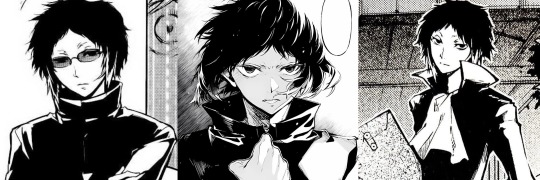
AKUTAGAWA RYUUNOSUKE
ISFP (The Adventurer / Composer ) - Fi > Se > Ni > Te
Akutagawa's dominant function, Introverted Feeling (Fi), reveals itself in his deeply personal sense of morality and the intense emotions that drive his actions. Although Akutagawa often appears cold and ruthless, his actions are motivated by a strong internal value system that he seldom reveals to others.
His need for validation, particularly from Dazai, is rooted in a profound sense of inadequacy and a desperate desire to prove his worth. This internal emotional landscape, characterized by Fi, defines Akutagawa’s motivations and underlies his quest for recognition, even as he grapples with feelings of rejection and worthlessness.
Next, we have Extraverted Sensing (Se), Akutagawa’s auxiliary function, which manifests in his acute awareness of his physical surroundings and his reactive combat style. Akutagawa thrives in high-pressure situations, where his ability, Rashomon, is wielded with precision and adaptability.
His Se drives him to engage with the world directly and immediately, making him a formidable force in battle. This function supports his Fi by allowing him to take swift and decisive action in pursuit of his personal goals, often leading to intense and violent encounters that are driven by his emotional undercurrents.
His tertiary function, Introverted Intuition (Ni), plays a subtler but significant role in his character. While Akutagawa is primarily focused on the present, there is a persistent sense of future orientation in his actions.
His Ni is evident in his long-term goal of gaining Dazai’s approval and the way he internalizes past experiences to guide his decisions. This function supports his Fi by giving him a sense of purpose and direction, even if it is often clouded by his immediate emotional responses.
Akutagawa’s Ni also manifests in his ability to foresee the consequences of his actions, though this is often secondary to his more dominant functions.
Lastly, Akutagawa’s inferior function, Extraverted Thinking (Te), is the least developed and manifests in his occasional struggle with logical organization and external structure. While Akutagawa can be strategic and methodical in battle, his approach is more often driven by his emotions and immediate sensory inputs rather than a clear, logical framework.
His Te surfaces when he attempts to impose order or efficiency in his environment, but these efforts are often overshadowed by his more dominant Fi and Se functions.
This inferior Te contributes to his difficulties in aligning his internal values with the external world, leading to a sense of frustration and conflict when his actions fail to achieve the desired results.
In conclusion, Akutagawa embodies the traits of an ISFP through his dominant Fi, which drives his intense emotional core and need for validation; his auxiliary Se, which fuels his reactive and physically engaging combat style; his tertiary Ni, which provides a sense of direction and future orientation; and his inferior Te, which occasionally struggles to impose order on his chaotic inner world.
His darling: ISFJ - Si > Fe > Ti > Ne
Or ENFJ - Fe > Si > Ne > Ti
ISFJ - (The Protector / Defender)
An ISFJ female darling would be the ideal match for Akutagawa, providing the stability, care, and emotional grounding that his turbulent ISFP personality craves.
Her dominant Introverted Sensing (Si) would offer Akutagawa a sense of continuity and reliability, something he deeply lacks in his chaotic life. Her ability to recall and value the past would help him feel anchored, offering him a safe emotional space where he can reflect on his experiences without feeling judged or misunderstood.
This grounding presence would counterbalance his reactive and intense Extraverted Sensing (Se), allowing him to find solace in a more structured, stable environment.
The ISFJ’s Extraverted Feeling (Fe) would complement Akutagawa’s deeply personal Introverted Feeling (Fi) by helping him navigate his emotions in a more outward, constructive manner. Her natural empathy and concern for others would provide him with the validation and understanding he seeks but often feels he doesn’t deserve.
Through her Fe, she would help Akutagawa express his feelings in a way that fosters connection rather than isolation, gradually teaching him that he is valued for who he is, not just for his abilities or his success in battle.
Her Introverted Thinking (Ti), while not as prominent, would provide a quiet, logical framework that could help Akutagawa make sense of his internal conflicts.
This function would assist in gently guiding him toward clearer, more structured thinking without overwhelming his emotional processes. Her Ti would act as a subtle but important counterbalance to his chaotic internal world, offering a perspective that is both patient and rational, helping him organize his thoughts and decisions more effectively.
Lastly, the ISFJ’s Extraverted Intuition (Ne), as her inferior function, would resonate with Akutagawa’s Introverted Intuition (Ni), fostering a mutual understanding of future possibilities and deeper meanings.
While her Ne is less developed, it would still complement his Ni by encouraging him to consider alternative perspectives and outcomes, subtly broadening his view without destabilizing his primary focus.
In summary, an ISFJ female darling would bring the stability, emotional support, and gentle guidance that Akutagawa desperately needs.
Her Si would provide grounding, her Fe would offer emotional understanding, her Ti would introduce subtle logic, and her Ne would complement his intuitive insights.
Together, these qualities would help Akutagawa find the balance and emotional connection he craves, making her the best possible match for him.
ENFJ (The Protagonist / Teacher):
An ENFJ female darling would be the second-best match for Akutagawa, offering him the emotional guidance and supportive leadership that could help him grow beyond his inner turmoil.
Her dominant Extraverted Feeling (Fe) would provide a nurturing and empathetic environment, allowing Akutagawa to feel understood and valued.
Her ability to connect with others on an emotional level would help him open up and express his feelings, easing his deep-seated need for validation and helping him navigate his intense Introverted Feeling (Fi) with more clarity and compassion.
The ENFJ’s Introverted Intuition (Ni) would align with Akutagawa’s own Ni, fostering a shared sense of purpose and vision. Her ability to see the bigger picture and understand the deeper implications of their actions would resonate with his need for meaning and direction.
This connection would help him focus his energy and emotions on long-term goals, providing a sense of purpose that extends beyond his immediate struggles.
Her Extraverted Sensing (Se), as her tertiary function, would complement Akutagawa’s auxiliary Se, encouraging him to engage more fully with the present moment.
While her Se is not as dominant, it would still offer a playful and dynamic energy that could help Akutagawa enjoy life’s experiences more openly and with less fear.
This would balance his sometimes overwhelming focus on immediate, intense sensory inputs, helping him approach situations with a bit more lightness and adaptability.
Lastly, the ENFJ’s Introverted Thinking (Ti), as her inferior function, would provide a subtle but important balance to Akutagawa’s chaotic internal world.
Though not her strongest function, her Ti would still offer a logical framework that could help him analyze situations more objectively. This would aid in softening the extremes of his Fi and Se, guiding him toward more balanced and thoughtful decision-making.
In summary, an ENFJ female darling would bring emotional warmth, shared vision, and a supportive, structured approach to Akutagawa’s life.
Her Fe would help him connect and express his emotions, her Ni would align with his sense of purpose, her Se would complement his present-focused intensity, and her Ti would offer subtle logical support.
Together, these qualities would help Akutagawa find emotional balance and a sense of belonging, making her an excellent match for him.
#bungou stray dogs#bsd#yandere bsd#bsd fyodor#bungou stray dogs fyodor#fyodor dostoevsky#fyodor dostoyevsky bsd#fyodor x you#dazai analysis#bungo stray dogs dazai#dazai#osamu x reader#dazai osamu#bsd chuuya x reader#bungo stray dogs chuuya#chuuya x reader#bsd chuuya#bungou stray dogs chuuya#chuuya nakahara#bsd analysis#bsd dazai#bsd nikolai gogol#bsd nikolai#bsd akutagawa#akutagawa ryuunosuke#mbti personalities#bsd mbti#mbti#MBTI analysis#bungou stray dogs dazai
234 notes
·
View notes
Text
I put A LOT of thought into this…
Let’s set the scene: it’s 3AM. The wine and sake are flowing. The projector is on. Each BSD character has been given a PowerPoint topic of their choice—and none of them are okay. Here’s how that night goes down:
~~~~~~~~~~~~~~~~~~~~~~~~~~~~~~~~~~~~~~~~~~~~~~~~
1. Dazai
Topic: “101 Ways to Die That Are Equal Parts Tragic and Aesthetic”
Includes live-action demos, self-insert fanfiction, and subliminal cries for help masked as jokes. Ends with “Just kidding… unless?” and a dramatic swan dive off the table.
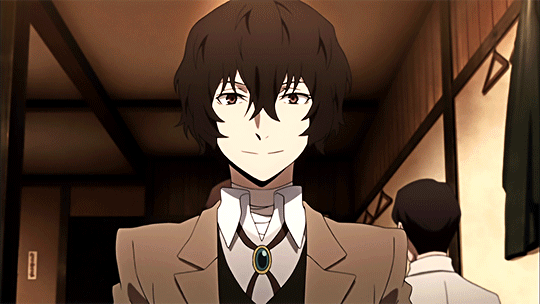
2. Nikolai
Topic: “Morality is a Social Construct and I am God”
The fonts change every slide. He’s screaming. Someone is crying. Half the presentation is interpretive dance and the other half is him firing a gun into the ceiling.
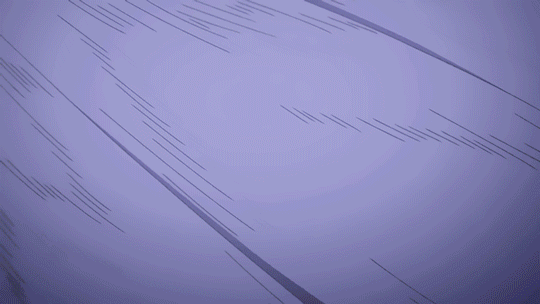
3. Fyodor
Topic: “Why Killing Half the World is the Only Logical Step Toward Salvation”
He brought a laser pointer and a sermon. Every slide is black with white Times New Roman. Ends with “Anyway, your hands are already stained. Let’s pray.”
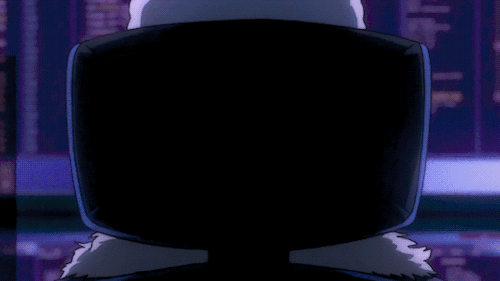
4. Chuuya
Topic: “Why Dazai is a Menace and Needs to be Punched Into the Sun”
Starts serious, gets personal. There are memes, security cam footage, a guest appearance from a wine bottle, and exactly one tear he doesn’t talk about.
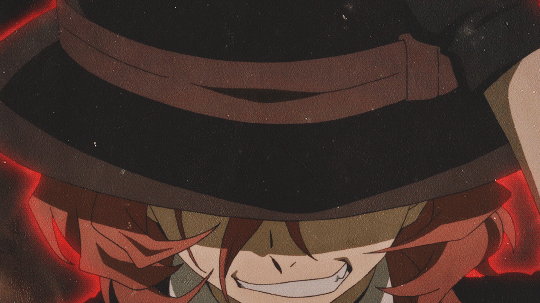
5. Akutagawa
Topic: “Why I Deserve Basic Human Decency (But Don’t Want It)”
Slide 1: A photo of Dazai. Slide 2: Atsushi’s teeth mid-yell. Slide 3: A scribbled poem called “I Eat My Pain.” Ends with him rage-quitting and pacing in the corner.
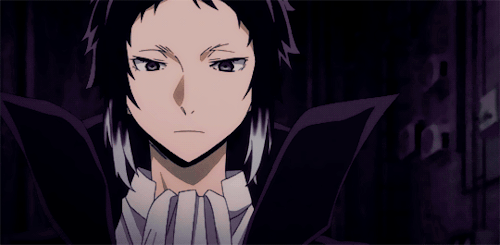
6. Sigma
Topic: “Trust Issues and the Concept of Found Family: A Cry for Help”
Half emotional TED Talk, half breakdown. Keeps apologizing for trauma-dumping. Ends up curled in a blanket while everyone reassures him for 45 minutes.
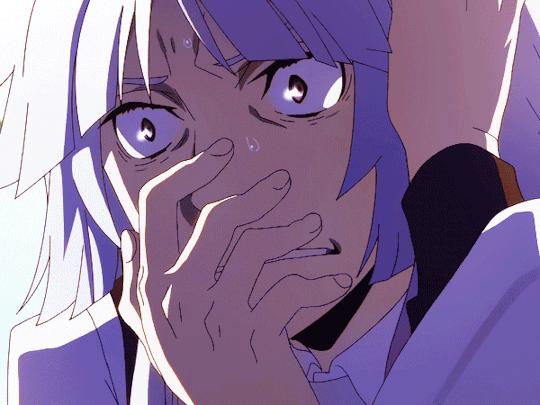
7. Ranpo
Topic: “Why I’m the Smartest Person Here and You Should All Cry About It”
It’s just him bullying everyone with facts. He hacks the projector. Dazai gets roasted. Somehow he figures out Fyodor’s entire plan in slide 5 and drops the mic.
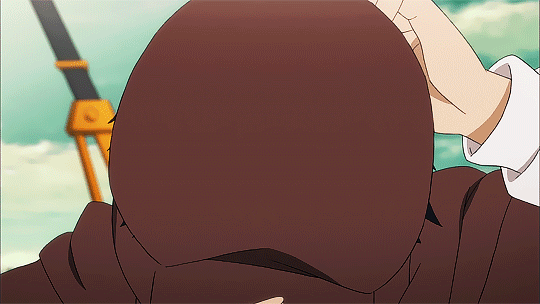
8. Atsushi
Topic: “Therapy Isn’t Working and Here’s Why”
The slides are heartfelt and deeply self-reflective. Everyone gets uncomfortably emotional. The last slide is just a photo of him as a kid with “Do I deserve happiness?” in Comic Sans.
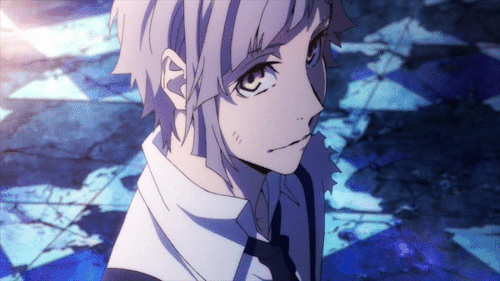
9. Chuuya again:
Drunk bonus round: “Dazai is Tall and That’s the Real Crime.”
#bsd#bungo stray dogs#bsd dazai#dazai osamu#chuuya nakahara#bsd chuuya#chuuya bsd#dazai#bsd anime#bsd posting#bsd analysis#atsushi bsd#bsd akutagawa#bsd nikolai#bsd sigma#bsd memes#bungo stray dogs sigma#bungo stray dogs nikolai#bungo stray dogs ranpo#bsd ranpo#bsd shitpost#bungou gay dogs
54 notes
·
View notes
Text
Clothes in BSD
Part 1: Loyalty, Morality, and Characterization Through Coats and Colors




Thread on Twitter: https://x.com/RandoBSDAnalyst/status/1806408372897353988
Clothes are an integral part of the symbolism in Bungou Stray Dogs, as Harukawa and Asagiri spent a lot of time working together to come up with the final designs for the characters. The idea of coats and borrowed clothing especially appears over and over again in the series, building upon each other and adding to the themes in ways that demonstrate what matters to the characters.
We can begin with coats. The fandom-famous coat theory is related to loyalty and motivation, but I believe there’s so much to be said about vulnerability and morality as well when it comes to the coats. There’s notable variation regarding color and the way coats are worn and treated throughout the series, and there’s much you can understand regarding the characters based on the coat and clothes they wear and how.
We can start off by using Dazai. In Fifteen, he does not actually wear a coat, opting to instead wear just the tie, white dress shirt, and black dress pants. He had no attachment to the world or any organization at that point in time, and so there was no need for the Demon Prodigy mask and the many other masks he would very quickly develop over time. From a more morality-based viewpoint, their mind had not been completely darkened at that point, either, despite them very obviously displaying signs of how twisted their mind was and how much he was quickly learning from Mori over time (hence the black tie and black pants). However, right after the events of Fifteen, he did start wearing a coat after being gifted one from Mori. It was black, like the tie and pants, and it hid parts of the white dress shirt he still wore underneath. This is connected to how his mind had become far more dark by that point, and how he had officially become part of the underground by joining the Mafia. He covered up the remaining bits of genuineness and good still left in him, and officially became the Demon Prodigy Mori had been trying to shape him into. Then, by the time we see Dazai in Osamu Dazai and the Dark Era, he had also decided to wear a black suit jacket underneath the coat. Just as it obscured more of the white dress shirt underneath, it further obscured Dazai’s self and hid anything left that was remotely genuine and innocent out of a (sub)conscious desire to not be vulnerable and get hurt. Those parts of him still existed, but they were hard to find, especially as nobody but Chuuya and Oda tried to truly understand him and his struggles. What the others could see was that Dazai was fully enveloped in his Demon Prodigy mask by then, and he was very eerily reminiscent of Mori in the darkness and cold logic he carried with him wherever he went.
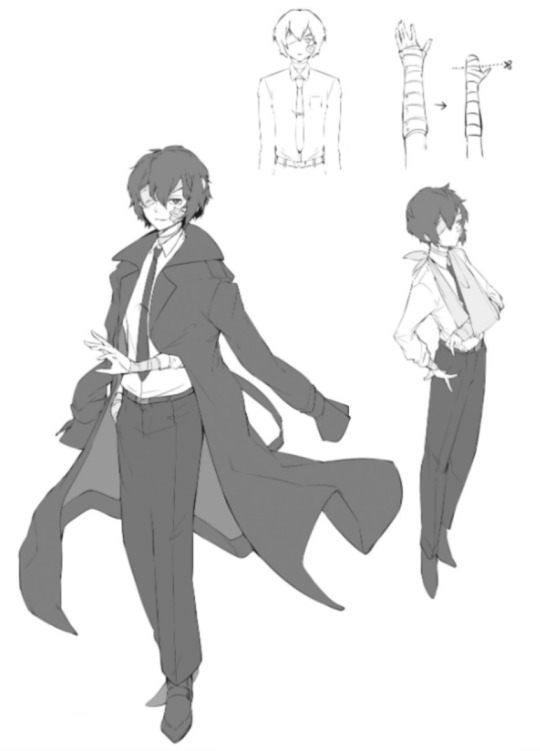

However, there are hints as to how he truly felt about Mori and the Mafia, even back then, as coats in BSD do say so much about loyalty. It is important to note that even though he wore the suit jacket properly during the Dark Era, perhaps indicating his commitment to the masks and in pushing away the good he can do due to his feelings regarding himself, he still did not ever wear Mori’s coat properly. This indicated his wavering loyalty, hinting that he in no way was particularly loyal to the Port Mafia and Mori from the very beginning. His reason for officially joining and adopting the thin facade of loyalty at the age of fifteen was only to continue observing humanity after Chuuya inadvertently convinced him to see life in another light. He wanted to get a glimpse of life and what it means to be human amid all the death and destruction, not to further the interest of the Mafia and Mori beyond what would allow him to continue his exploration. And we see that as soon as they see Oda’s body on the floor and rushes to him, the coat falls off. He then claimed to have burnt the coat afterward, removing any attachment to the darkness and Mori, despite mentally still being very much affected by them.
Once he left, he started wearing the coat that is now so familiar. It is tan, similar to the coat Oda used to wear, and a physical reminder for himself of what he is doing all this for. He wants so badly to belong in the light and fulfill the promise he had made to one of the only people who understood him, and so he must have felt the coat was a perfect replacement for the one he once wore. And, unlike the black coat, Dazai wears this coat properly, as he is genuinely loyal to Oda and Oda’s wishes for him. Beyond the coat, Dazai also decided to change other parts of his outfit. He does wear a dark vest underneath the coat that is quite similar to the suit jacket he used to wear, but he chose to replace the rest of his clothes with ones that are lighter, more befitting of someone in the light (though the dark vest serves as a reminder of his moral grayness). If they were going to create a whole new persona, especially one that tries so hard to come off as friendly and bubbly, then they would need clothes to match. His black pants were replaced with khaki ones, and his black tie was replaced with a bolo tie. All in all, while there are still many layers to what Dazai wears (Dazai will perhaps never be perfectly at home around others no matter the organization, as humanity is still something he does not consider himself a part of), the overall vibe is less formal and dark.

Let’s move on to Chuuya, whose design had a lot of thought and time put into it by both Asagiri and Harukawa. Chuuya wears many layers as well no matter what age you consider, which hide the vulnerable parts of him in a way that is similar to Dazai. Even in the Sheep and during the Dragon’s Head Conflict, where he wore what could be considered streetwear, he still wore several layers to hide himself. He may end up wearing his heart on a sleeve for those who look and may bleed for those he cares about, but emotional vulnerability and trust is still difficult for him. But what’s more interesting, once again, is how his clothes also display his loyalty. Chuuya is an extremely loyal individual, and his connections to the different organizations he works/worked for are so important to understanding him and his view of his humanity. Chuuya has always been trapped and bound to whatever organization he works for by his loyalty, and forced by the nature of his ability to always protect those under him. He thus wears a literal choker around his neck after joining the Port Mafia, a physical representation of the “dog-like” loyalty that binds him to the Sheep and then the Port Mafia. It was not part of his outfit during his time in the Sheep, but that is most likely because he did not see his loyalty and his ability as truly binding. He cared for the Sheep and thought that they cared for him in return and only expected so much from him because he’s him. But once he met Dazai and Mori and experienced first hand what the Sheep truly thought of him, he began to feel tied down by his own loyalty and forgiving nature.
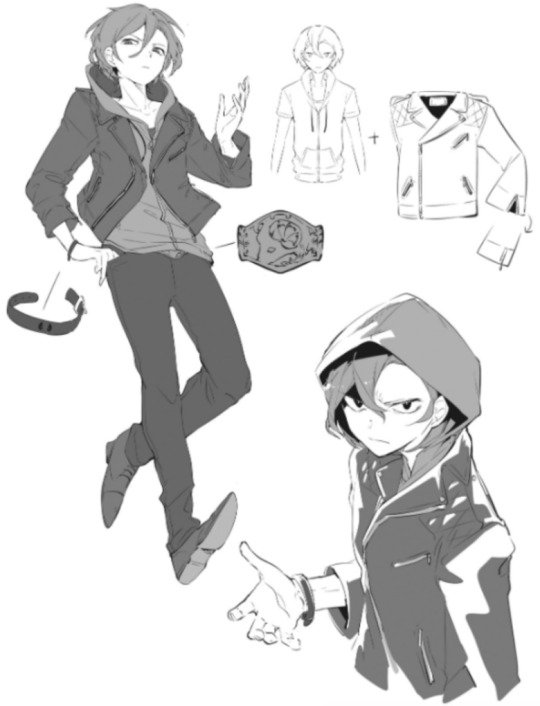



Chuuya also used to wear his jacket properly in the Sheep, and before Dazai left the Mafia, he wore any jacket or coat that was part of his outfit properly as well. The Sheep, and then the Mafia, were his family for better or for worse, and he feels such a need to protect those under him and to become more of the leader he unfairly thought he should have been for the Sheep. He was determined in these goals and to protecting Yokohama through missions in the Port Mafia, and so his outer layers are worn the way they were meant to be. However, you may notice that currently, Chuuya does not wear his coat properly despite his loyalty towards the Port Mafia. It’s the one layer of his clothing not fully worn. It also comes off often, and there is one common denominator to every time Chuuya does take off the coat: either he’s relaxing after a long day, or he’s with Dazai (who is the only one he takes his coat off around when he’s meant to be working for the Mafia). Whether hes’s fighting against, with, or for Dazai, his coat is always the first item to go flying (literally). Think of the dungeon scene, the fight against Lovecraft where the very first attack results in Chuuya’s coat falling off, and the rescue in Dead Apple where Chuuya’s coat falls off when he jumps off of a plane. This reveals something interesting: while Chuuya is incredibly loyal to the Port Mafia, he would always be willing to cast that loyalty aside for Dazai. Even if Dazai is a known traitor, Chuuya is willing to cast that aside for the sake of Soukoku and Yokohama. There was no need to do this before Dazai left the Mafia, and so he never wore his jackets or coats improperly before then. The shedding of the coat is also a physical representation of the way they trust each other and are willing to cast aside some of their masks and their game of hatred to reveal some of the vulnerability underneath — something that goes unsaid between the two but is so important to their bond. Without that deeply rooted trust, Soukoku would not function the way it does. Not only that, but the coat he sheds is also black, and removing it reveals the lighter layers underneath, as if Chuuya is shedding his darkness each time in order to be genuine. It is only Dazai that gets to see the more human side of Chuuya while Chuuya is working, only Dazai that gets to see the truth behind the darkness that shrouds both of them.
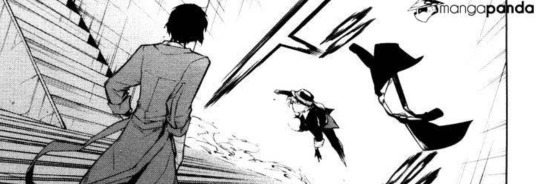


One could also say that the coat very loosely represents Chuuya’s masked feelings towards Dazai, though this interpretation does not really get the whole picture, considering how coats are a consistent symbol across characters and how Chuuya does take off the coat when he’s relaxing (so the coat representing his loyalty and feelings of responsibility to the Mafia, and the layers representing the layers shielding his vulnerability, makes more sense). But let’s indulge the idea for a moment. Chuuya acts like he hates Dazai, but that mask leaves very quickly when needed (just like the coat), as those feelings of hatred have no depth or genuineness. This idea still can be tied back to loyalty, however. Once Dazai left, there was a new layer that had to be added to the game the two like to play: they are now in different organizations with differing principles since Dazai left. It makes sense for Chuuya, as an executive, to detest somebody who had betrayed the organization. The Port Mafia is not kind to traitors, after all, and the organization is not meant to be easy to leave. However, Chuuya’s true feelings regarding Dazai’s betrayal of the Mafia are obviously far more complex. He doesn’t truly feel betrayed by Dazai’s departure like a high-ranking member of the Mafia is meant to, no matter how he acts outwardly. Instead, as someone who “had” considered himself to be Dazai’s partner, he knew and still knows Dazai too well to be genuinely mad at him for leaving such a place. If anything, he sorely missed having him with him. He thus never wears his coat properly, ready to take it off whenever the mask of hatred he is meant to keep on after Dazai betrayed the Mafia (connected to his loyalty to the Mafia) goes at odds against his heart and loyalty to his partner. And in return, Dazai doesn’t hesitate to still make him an integral part of his plans.
Now let’s talk about their outfits in the BEAST universe, because something you can notice immediately that differs from the main universe is that Dazai and Chuuya do wear their coat, in Dazai’s case, and suit jacket, in Chuuya’s case, properly. So what does this say about BEAST Dazai and Chuuya? In the case of Dazai, it being worn properly showed his dedication to the plan he had come up with and took over the Mafia to ensure the success of. He took the job of being the boss seriously, and so he wore Mori’s coat the way it was meant to be worn. The dark coat also added another intentional and well-maintained layer of darkness that shrouded the white dress shirt underneath everything Dazai was wearing. It’s a lot harder to take off a well-worn coat than a coat that simply hands from the shoulders, much like how his Demon Prodigy mask and darkness are a lot harder to see through in BEAST. He intentionally isolated himself due to his goal, allowing only Chuuya and Gin by his side, and blinded himself to the pain and darkness that surrounded him so completely as a result. Chuuya, too, is more dedicated to his role and to the goals of the Port Mafia, as all he had in BEAST was Dazai due to being even more isolated from others than regular Chuuya. And even if Chuuya did have others close to him, since Dazai remained in the Mafia, Chuuya had no reason to switch from wearing his coat or jacket properly to wearing them over his shoulder like he did in the regular universe. There was no conflict between his loyalty to Dazai and his loyalty to the Mafia, and so his feelings towards Dazai only intensified the dedication he had to the organization. In addition, notice that BEAST Chuuya wears a red dress shirt instead of a white one like he does in the regular universe, which could represent how much lonelier and thus darker BEAST Chuuya was.
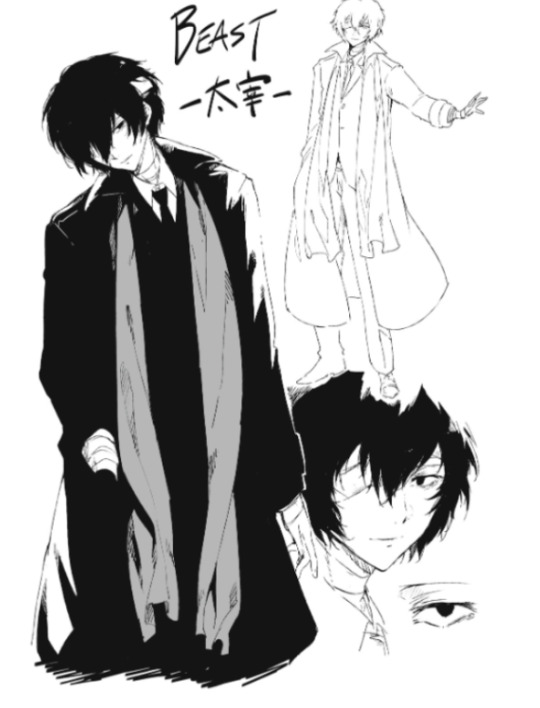
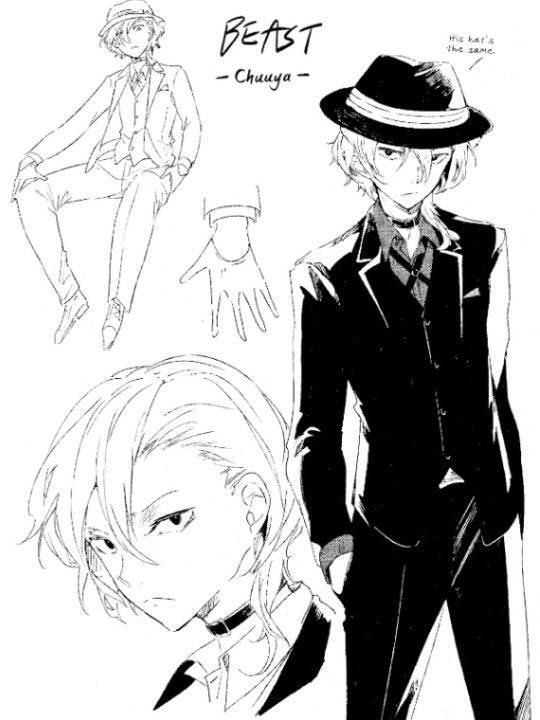
Fyodor is another character whose coat and colors tell us a lot about him. As confirmed by Asagiri, his outfit and general appearance were based on The Brothers Karamazov by irl Fyodor Dostoyevsky. More specifically, his design was influenced by a scene in the book where Ivan, the middle of the three brothers, has a conversation with the devil. Looking at the scene, it is clear where Fyodor’s ushanka and hair came from (thanks, @/wolfkil1r on twt for this revelation):


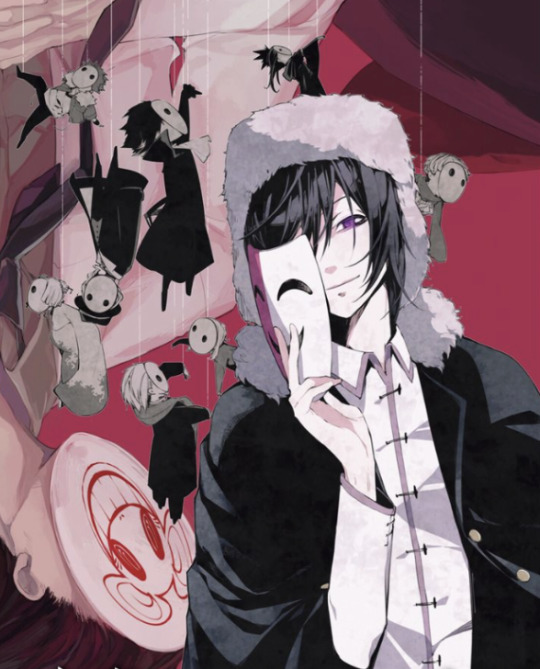
I’ll do a separate analysis on the literary references that went into Fyodor’s character, but it is important that his design is meant to evoke the character of the devil from the novel. Clothes give you an idea of a character’s motivation, after all. In addition, the black in his outfit and hair contrasts with the white found in the Decay of the Angel. Black shrouds the white, like how evil corrupts the pure and how Fyodor manipulates the group behind the scene. The black covering the white also evokes the idea of the fallen angel. The character of the devil in The Brothers Karamazov was once an angel who had fallen from grace and was forced to shoulder the burden of humanity’s sins. Fyodor, similarly, lost his humanity (and the goodness within) due to the nature of his immortality and his desire to achieve his goals using whatever means are most effective. He wishes to get rid of the sinfulness of humans, but has long since sacrificed any goodness he may have had for the sake of efficiency. Besides black and white, though, Fyodor is also very closely associated with the color purple, a color that is deeply connected with the idea of nobility and power. In Christianity, the color is also used to represent Christ’s suffering and death, since a purple robe had been placed on him as a sign of mockery before his crucifixion. As Fyodor is a character so closely tied into religion, Christ, the devil, and the concepts of death and rebirth, this truly is the perfect color for him.
For both Fyodor and Dazai, however, there’s also another set of rather symbolic outfits to look at: the white ones they wore in Dead Apple after being made to do so by Shibusawa. The white once again evokes the idea of purity, and of angels. White is also often used to symbolize death, due to the color’s spiritual importance as a result of its connection to purity. The outfits (and a lot of the characters associated with Fyodor, who are known for having long white hair and wearing white) bring these two concepts together beautifully. Wearing these gorgeous pieces of clothing while in the safety of Mukurotoride, Dazai, Fyodor, and Shibusawa observed the ruin that the fog brought to Yokohama from above, like angels observing humanity from heaven. Due to the nature of their intelligence and thought processes, all three of them are known for feeling isolated from humanity, their minds unable to be comprehended by the masses. Angels are indeed the perfect representation of this isolation, evoking the idea of being distant from humanity. This also ties in quite neatly to the symbolism of angels and religion in the series, as just like in the play in The Untold Origins of the Detective Agency, the “angels'' were portrayed as people who watched destruction unfold below them after putting different things into motion. They may appear pure as snow, but their morals and ideas can be put into question. Or you could think of it as angels being too divine and disconnected from humans to lose themselves in morality and experience something so human as suffering, which would make sense in the discussion regarding humanity.
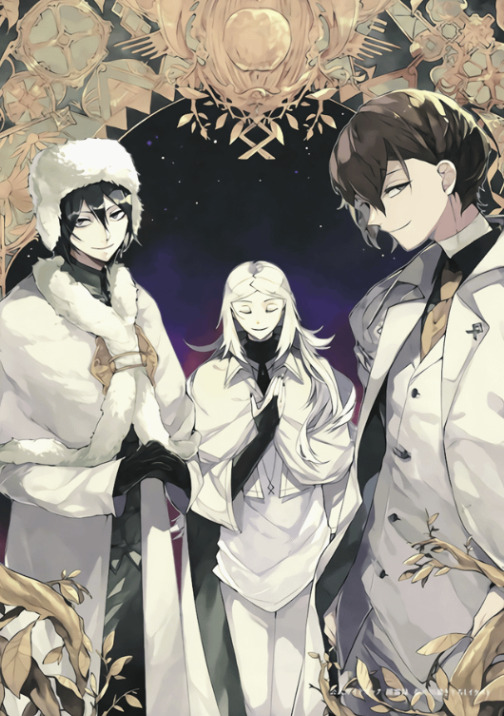
However, their outfits were not pure white, so the outfits could also add to the fallen angel symbolism prevalent in the series (which is of course very closely related to the idea of angels in the series, as the “angels” in BSD aren’t quite pure). The inner lining of the coats were black, as well as their shoes, Fyodor’s gloves, and the dress shirt Dazai wore underneath. And speaking of Fyodor’s gloves, that was actually the only addition to Fyodor’s outfit other than the coat. He was still wearing the same outfit he always wears underneath. All this is a reminder, representing how they are still them. Even though their intelligence allows them to rise above the rest, there is still darkness (morally and psychologically) that lies inside the minds of the three individuals. The black against the flowy white does elicit the image of a fallen angel, after all. The three may all be beautiful and beyond human in terms of their brains, but darkness has long since become a part of them, the “purity” of their appearance corrupted by their minds and perspectives of humanity. This really does go along well with a lot of other symbolism in the series, and it ties back well with the fact that Fyodor is the only dark-haired member of the Decay of Angels.
With these interpretations in mind, it is interesting that Dazai was the only one who did not wear his coat properly. He instead wore it over the shoulder, much like he had back in the Port Mafia. This could be a way of symbolically representing how his mind is still forever affected by his time in the Mafia, and how he liked to lean more into his Demon Prodigy mask especially when with Fyodor. Dazai has a habit of subconsciously soaking up the darkness around him and slipping into whatever role is expected of him, tailoring his masks and perspectives based on the person he is talking to in order to appear as if he belongs and can deeply relate to the other. And indeed, for a long while, Fyodor thought Dazai’s thought processes and ways of seeing people are the same as his, which is why he was so caught off guard by Dazai’s ability to adapt, trust, and use the unpredictability of humans to his advantage. On this note, the way Dazai wore the coat could also be thought of as showing Dazai’s true feelings regarding humanity. Even though he was playing the role of the angel observing from the distance, it has become clear based on his thought processes in the ADA (and even back in the PM) that he does not think of this distance as a benefit. He admires humanity, and wishes to observe it from close up. After all, Chuuya had shown him so much about what it meant to fight and struggle as a human being, and Oda had provided him a compass for which to guide himself morally. He could never find humanity boring and predictable, a perspective that makes him so different from Fyodor, Shibusawa, and the weapon Mori desired to shape him into.
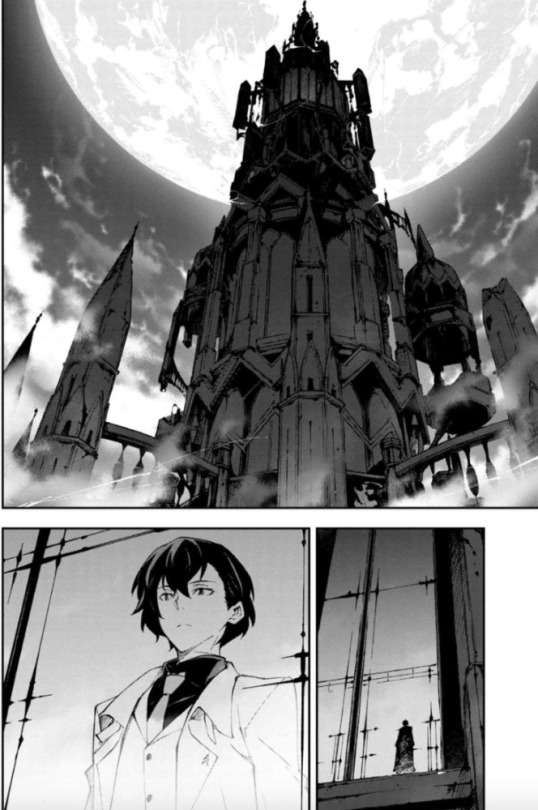
Moving on from Fyodor and Dazai (though I will be coming back to them again in a bit), Nikolai also has a pretty interesting design. His long, flowy overcoat is a nod to The Overcoat. The story is about a poor department store worker who lived the epitome of a monotonous and dreary life, and struggles to replace a coat that had been well worn. He eventually saved up for a new coat, and when he finally got it, it allowed him to finally enter the world of humans and desire. He was free from the monotony of his banal existence. But then one day, he was attacked and the coat was taken from him, bringing him back to his dreary reality. It was inevitable that the world of humanity and emotions wouldn’t last, and the man died as pitifully as he lived. I feel like it was irl Gogol’s own existence and experience with religion that inspired Nikolai’s design and characterization far more than a single specific piece of his work, but I feel like the story does play well into the futility of Nikolai’s desire to be free from the structure of society and his own existence.
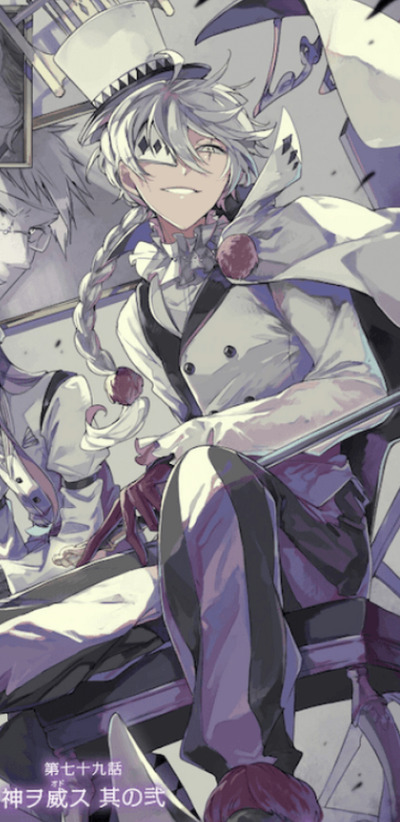
As for Nikolai’s specific coat, it is white, but it also has a black lining on the inside. There are also black details on the suit and pants as well, making the outfit appear like a mix of the ones worn by clowns and ringmasters. The outfit is perfectly representative of Nikolai’s character, blending the comical and whimsical side of him with his sharp intellect and (rather sadistic) interest in creating games. The white and black also show his conflicting relationship with morality and honesty. Instead of having the colors in layers like the other characters, the white and black are all over the place, contrasting to form a twisted, clownish image that makes it difficult to discern what is true from what is not. He wishes to push morality and to shed the boundaries set by human nature and morality, and so he does not get set layers of white or black. However, after Fyodor’s “death,” when Nikolai was talking about his conflicted feelings and how much being understood by Fyodor meant to him, you can see that the black parts of his outfit are hidden. He’s being genuine for once, revealing his true feelings and pushing aside the goal he thought he wanted to achieve: of being free from everything. Instead, what he had truly wanted was to be understood.
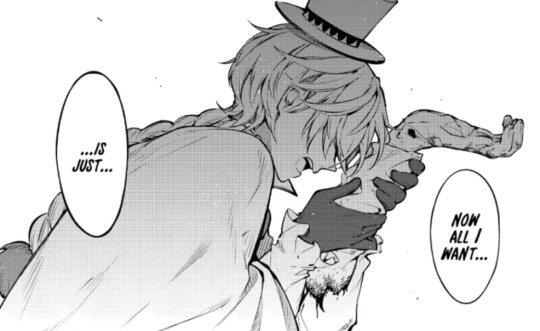
Now, I promised to circle back to Fyodor and Dazai, and that is because there’s still one final detail for this section that’s very important and connects different pieces of clothing in BSD (which is why I saved it for the end). Going back to Fyodor’s outfit in Dead Apple, there was a unique design on the bottom that may be familiar to those who draw Sigma’s coat. Here it is again:
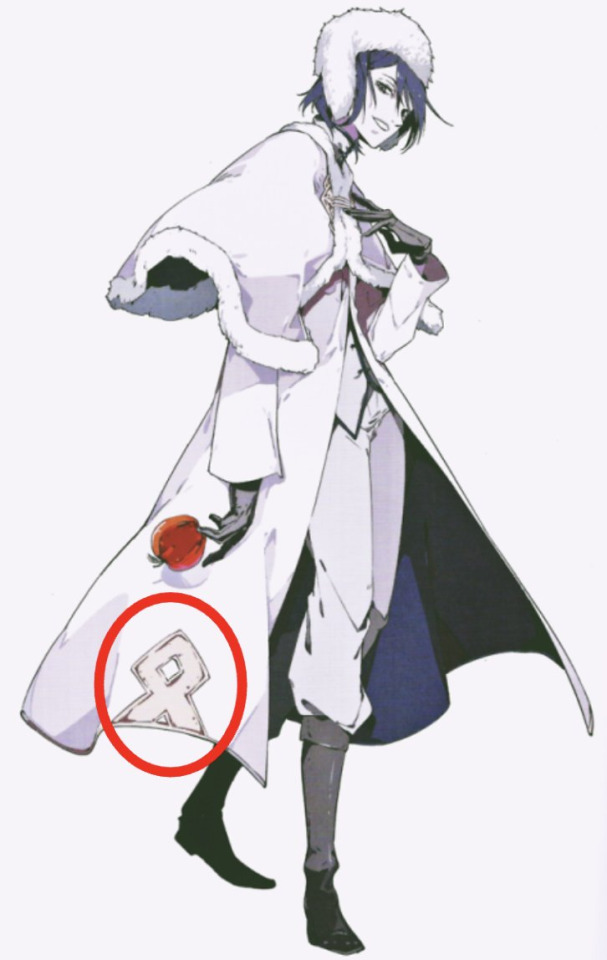
Shubisawa and Dazai, too, had the symbol as a part of their outfits, and it was also on the strange outfit Akutagawa was wearing at the very end of the last episode of season 5:


And here is the same thing on Sigma’s coat. The shape of the cutout forms the exact same symbol.
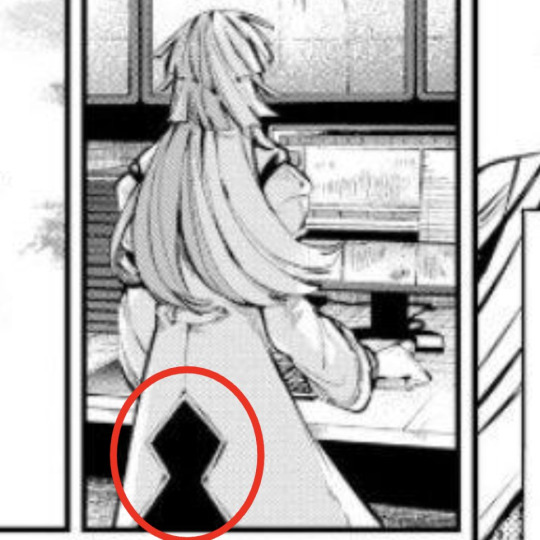
Clearly the symbol is important and might be leading up to something if Akutagawa’s new outfit contains the same symbol, But what does it mean? Well, the shape is actually known as the othala rune. Runes were originally created and used by Germanic groups before they adopted the Latin alphabet, but variants were devised by Scandinavian as well as Anglo-Saxon groups. Knowing that Sigma’s design seems to have some Celtic and Nordic inspirations, it’s to be expected that a symbolic rune would be utilized in his design. The othala rune, generally (as there is obviously going to be variation and nuance in the way the rune is thought of), represents the idea of home, legacy, and heritage.

This is so perfect for Sigma’s character, whose whole story revolves around how he does not have a past and a home. To him, these two things are the very basis of what makes a human human, and they therefore drive his decisions and struggles. And just like any other human, Sigma fights tooth and nail against the constant tirade of life, clinging on desperately to the hope of finding the meaning and purpose that he believes his life to lack due to his supposed lack of humanity. This drive is exactly what Fyodor wanted to exploit using the casino, and is what allowed Dazai to successfully convince Sigma to betray the Decay of Angels. They both knew what Sigma desired was a true home, and that he would do anything to protect anything even slightly close to one, even if he felt like he could never match up to the others.
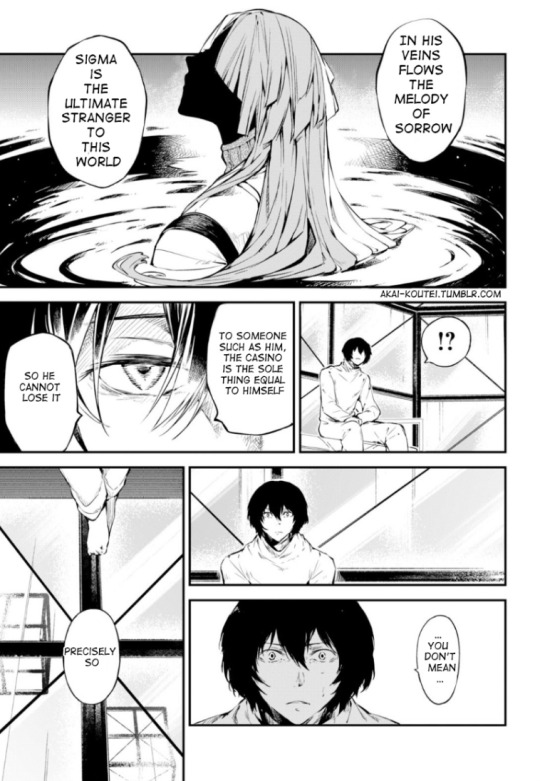
Shibusawa, too, had wanted to know his past, as he had forgotten it after his death. He had no home or past that he could remember, and so he sought his old memories, wishing to get them back so he could understand what happened to him and find his true self. And so he was easily manipulated by Fyodor for a second time, his ego and wish to get back his memories preventing him from seeing that Fyodor only wanted to use him. There is obviously more to what motivated Shibusawa (which was why he had desired Atsushi’s ability and to experience dying once more), but this is why the othala rune was part of Shibusawa’s outfit as well as the outfits he had forced Dazai and Fyodor into. In addition, it could also be said that it emphasized the way all three are isolated from humanity and do not belong anywhere: Shibusawa because of his death, Fyodor because of his ability, Dazai because of the dehumanization he went through, and all three because of their intelligence and incomprehensible minds.
Who knows what it means for Akutagawa, though. Is it the symbol of an organization or one used a lot in an alternate universe? Is it the Akutagawa we know, and he was given the outfit by someone? At this point, there is so little we know about how Akutagawa ended up by Atsushi’s side again, as well as the fates of others who had turned into vampires. However, the story isn’t done yet, so we’ll see how the plot points get resolved.
#bungou stray dogs#bsd dazai#dazai osamu#bsd chuuya#chuuya nakahara#bsd fyodor#fyodor dostoevsky#bsd nikolai#nikolai gogol#character analysis#bsd
70 notes
·
View notes
Text

More people gotta' realize the real actual depth to Nikolai's character (in general, but also) in relation to his friendship with Fyodor
Spoilers!! And also I’ve only seen the anime as of now so analysis may vary later
The two had very little on screen interactions so far, but from just that we know a lot,
Nikolai considers Fyodor his friend because he understands his beliefs regarding freedom.
Nikolai wants to kill Fyodor as a grand act of free will to prove not even his own thoughts and feelings are able to dictate what he does or does not do.
Nikolai does not want to cause his friend actual harm, he simply wants to prove he can. (I've seen people surprised that he was sad about Fyodor's death, he said himself that he feels remorse for killing and he's never shown otherwise despite his clear immorality)
Fyodor does not care nor does he fault Nikolai for his 'betrayal', of course he would see it coming considering, as previously stated, he understands Nikolai.
Fyodor shows only apathy or amusement for Nikolai, he is only his jester, his entertainment, and he happens to be very useful to him.
Fyodor is a psychopath, that is to say he experiences emotions more as thoughts rather than feelings, he doesn’t get attached or invested in things emotionally, he has emotions he just doesn’t feel them.
He doesn’t care for Nikolai, but he does like him and on a surface level the way he uses him is the same as friendship; Nikolai is someone he can count on to help him when he needs it, and someone he can go to for company and amusement, in other words, a friend, and Fyodor knows Nikolai considers him someone who understands him without judgment or questions he can’t/doesn’t want to answer. Both of them would call the other a friend.
Like the rest of Fyodor’s associates there’s an underlying sense of religion towards Dostoevsky, however Nikolai’s relation to him is more personal (at least from his perspective) which serves to strip away and replace the fear of divinity with a longing for understanding, a curiosity that until satisfied leaves Nikolai with another shackle to Fyodor that comes between him and freedom, which we can see in the way Nikolai observes Fyodor during his prison break game, he doesn’t just intend on killing him he wants to learn about him in the process.
Dazai said Fyodor doesn’t trust anything/anyone he can’t manipulate. This appears to be true as shown by his subordinates who have no choice but to follow him, whether physically, due to low quality life conditions, or mentally, because of reasons yet to be explained, example; Ivan who’s relation to Fyodor is depicted as a kind of divine madness (Ivan is heavily implied to have been lobotomized by Fyodor)
Contrary wise, Nikolai isn’t someone Fyodor has to manipulate, he very well could, and likely has at least a little, but he more than likely knows Nikolai needs no coercion to help him.
Nikolai found a sense of purpose though Fyodor and his understanding of his want to be free and lose himself, Fyodor’s death made the isolation of the so-called freedom Nikolai was after very evident.
Overall, the two’s dynamic revolves around a religious sense of faith. The faith between someone who has seen and heard and touched their god, and the unforgiving yet non judgmental god in question.
Fyodor is Nikolai's religion.
#bsd#bungou stray dogs#character analysis#nikolai gogol#bsd nikolai#fyodor dostoevsky#bsd fyodor#fyolai#normal about them#blorbo
64 notes
·
View notes
Text
MAJOR SPOILERS FOR BUNGOU STRAY DOGS CHAPTER 114!
GUYS IF FYODOR CAN POSSES A PERSON WHO TOUCHES HIS BLOOD AFTER HE DIES, WHOS CURRENT HOLDING HIS BLOODSOAKED SEVERED HAND
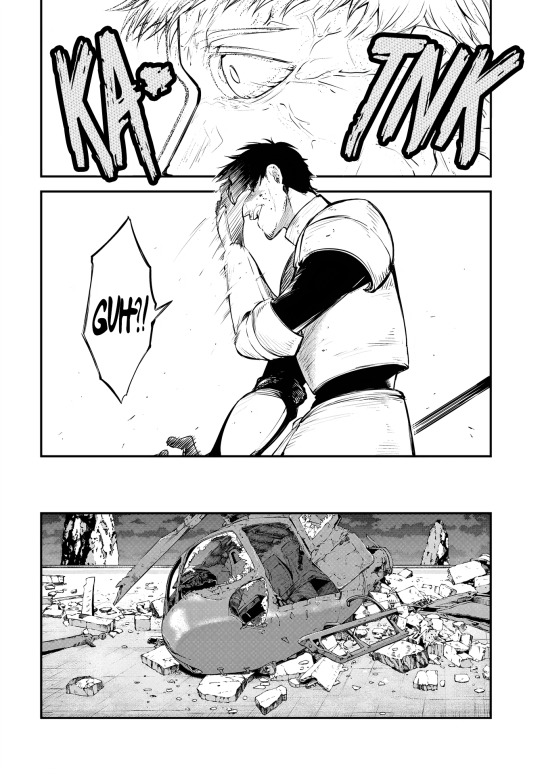
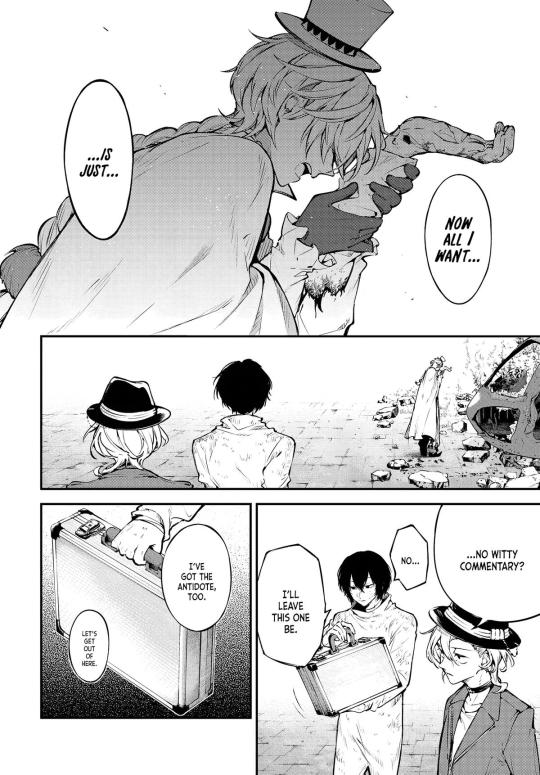
Fyodor promised to come after Gogol for trying to kill him and having the character who imbodies manipulation overwrite the free will of the character who above all else wants to break free of all control would be such a cruel and interesting twist, its so in in character for Fyodor to make Gogol care about him so strongly then destroy the greatest wish of Gogols heart
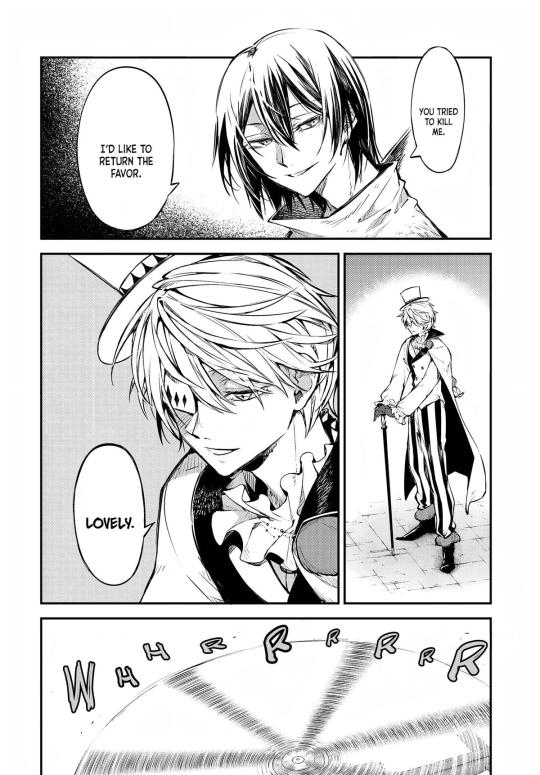
#bsd#bungou stray dogs#bungo stray dogs#bsd chapter 114#bsd manga spoilers#bsd manga#bsd fyodor#bsd fyolai#bsd nikolai#bsd gogol#fyodor dostoyevsky bsd#bsd analysis#bsd theories#bungou stray dogs theory#bsd theory
265 notes
·
View notes
Text
so. fyodor sees himself as a servant of god, as if he is a jesus like-figure. and nikolai was teamed up with fyodor but eventually chose to betray and try to kill him, much like judas.
and jesus knew he was going to be betrayed by judas, as fyodor accepted and challenged nikolai’s betrayal.
judas also felt great remorse and sadness as well as guilt for his betrayal after jesus’s death; similar to nikolai’s conflicted sadness towards fyodor dying.
this implies that fyodor and nikolai is a strange, fucked up version of jesus and judas. in this essay i will-
#ive seen peopel talk about narrative similarities but not exact examples so. this is how i intrepreted it#i could go in detail.#i did some research as well and there are definite parallels.#bsd#bungou stray dogs#bsd fyodor#fyodor bsd#fyodor dostoevsky#bsd nikolai#nikolai bsd#nikolai gogol#fyolai#bsd analysis#bsd spoilers
338 notes
·
View notes
Text
𝗙𝘆𝗼𝗱𝗼𝗿 𝗮𝗻𝗱 𝗡𝗶𝗸𝗼𝗹𝗮𝗶: 𝘁𝘄𝗼 𝗽𝗲𝗿𝗳𝗲𝗰𝘁 𝗱𝘆𝘀𝗳𝘂𝗻𝗰𝘁𝗶𝗼𝗻𝘀 𝗮𝗿𝗲 𝗱𝗿𝗮𝘄𝗻 𝘁𝗼 𝗲𝗮𝗰𝗵 𝗼𝘁𝗵𝗲𝗿

Fyodor can't function without God the same way Nikolai can't function without freedom.
Their personalities are so off-balanced and incompatible with reality, they need something outside of it to feel whole.
Eventually, their immense need to rely on Freedom/God distorts the very source of their comfort.
Freedom gets bloody, and God becomes hungry for the sacrifice.
But it isn't that freedom or God have fundamentally changed. What changed were their brains of those perceiving them and their motivations.
Gogol and Dostoevsky needed an ideal that would inspire them to live, no matter how disappointed they are with their own existence.
Both Clown and Demon also looked for a justification, a place onto which they could project their hidden pain, without directly interacting with it.
Fyodor and Nikolai were pretty angry at what happened to them in the past. Whatever it was, it hurt. And still does.
But neither Dostoevsky, not Gogol can't acknowledge that. If they would ever do so, these two would have to admit: they still care about people and the way people treat them.
So each of the duo says that they're hurting others, not for the personal gain or out of a desperate attempt to feel better. No, they're doing for the ideal: be it “Freedom” or the “God”.
It allows both Fyodor and Nikolai to keep lashing out, while keeping their self-images intact.
They keep saying to themselves: “I hurt others because of how inhuman I am”. While in reality the opposite is accurate.
They both became criminals because of their humanity, albeit flawed one.
Of course, Gogol's idea of freedom is almost broken or at least showing cracks. But Dostoevsky's obsession with God's is as strong as ever.
It'll only grow stronger, the closer Fyodor gets to the end of his goal.
Dostoevsky rushes towards it with all of his might because despite all his prayers and hopes, living with his version of God is still unbearable.
It kinda hurts.
And he wants it to stop.
#bsd#bsd manga#bungo stray dogs#bungou stray dogs#fyodor Dostoevsky#Fyodor Dostoyevsky#fyodor Dostoevsky bsd#fyodor dostoyevsky bsd#fyodor bsd#bsd fyodor#Dostoevsky bsd#nikolai gogol#nikolai gogol bsd#nikolai bsd#bsd nikolai#fyolai#fyodor x nikolai#nikolai x reader#Nikolai headcanons#bsd analysis#bsd theory
140 notes
·
View notes
Text
Currently thinking about the DoA.
Nobody in that organisation had the same goals. Fukuchi wanted to end a war, Fyodor wanted to further whatever the fuck he's doing, Nikolai hoped that the organisation would bring him closer to freedom. Sigma wanted a home. Bram never wanted to be there in the first place, as far as we know.
They were all just people who were alone who ended up together, but unlike the ADA, they're only there to use each other. They don't become close, a lot of them can relate to each other, but it doesn't help.
All organisations in bsd have a colour scheme, and the Decay's is white and purple.
Fyodor wore a white hat for the majority of his time with the DoA, while the other members all had white hair, maybe because he always intended to betray the organisation and was just disguising himself. He also played victim with Ace in season 3 only to outsmart him by the end of the episode.
Fukuchi wore the red-ish hunting dogs uniform, but used Amenogozen, which is sometimes shown to be purple and sometimes white, since he knew how terrible all the Decay were and was just using them like a weapon for what he believed was a good cause.
Nikolai wears mostly white, but a bit of black. He joined for selfish reasons, but in the beginning it was with what he considered good intentions; he wanted freedom, and didn't come to the conclusion that he needed to kill the guy who introduced him to the DoA in order to do that until later.
Bram never wanted to join. What we see of his outfit at that point is all black, but it's not until the sword is pulled out and he's free from the DoA that he has a full body and therefore full black attire.
Sigma almost entirely consists of white and purple, because, until Atsushi tries to save him, he has no loyalties besides the DoA; no intention of leaving.
But Nikolai defects and saves both himself and Sigma when Fyodor most likely intended for them to die, in order to kill him in Meursault. Sigma is ready to join the ADA if and when he gets the chance. Bram escapes with the help of Aya.
And then Fyodor abandons all pretense of being at all loyal to the DoA by killing Bram and Fukuchi, and then his new outfit (Bram's) is entirely black, and he's not wearing a white hat to cover up that he's not like the rest of them.
But none of them are entirely loyal, so what makes him different? I can't say for sure.
What I DO know, is that the DoA have ceased needing each other, so I think all the ones that are still alive are going to get a colour scheme change pretty soon. (Bram is too dead for that, but Fukuchi is Amenogozen now and Fyodor, as mentioned above, is wearing all black.)
So, for Nikolai, his past outfit was black and white, but primarily white. Also what it means for his character that a clothing change may or may not mean he gets rid of his jester persona is, uh, content for another post once I think about it more because I feel like that'll be Big.
And Sigma? Probably, he'll be wearing something more ADA adjacent (beige and possibly soft sunset tones, I believe) at some point soon.
Anyways yeah in conclusion the DoA was never a proper organisation, none of them cared for each other nor were they working towards the same goals, their needs just happened to align at some point. Also this is reflected in their character designs.
#bsd#bungou stray dogs#bungo stray dogs#long post#i havent even edited or checked for typos this is just rambling#decay of angels#bsd doa#fyodor dostoyevsky bsd#bsd fyodor#nikolai gogol bsd#bsd nikolai#sigma bsd#bsd sigma#bram stoker bsd#bsd bram#ouchi fukuchi bsd#bsd fukuchi#bsd theories#bsd thoughts#bsd analysis#bsd spoilers
103 notes
·
View notes
Note
ICSRUSN IKAOLAI
SO UM HELLO. THIS HAS BEEN ROTTING IN MY BRAIN FOR A WHILE NOW
icarus metaphor for nikolai comes from his relationship with freedom as a concept, something he finds to be his salvation, irresistible and which he wants to aspire to. his raison d'être. icarus' wings were made of wax. i symbolize freedom as the sun and the wings as fyodor specifically as fyodor was his primary method to 'achieve' this freedom in a sense. fyodor, and by extension the decay of angels, is what allows him to be closer to freedom, yet with that freedom comes the loss of the only man who ever has understood him. this is the conflict of nikolai as icarus, whose worldview plummets to the ground slowly as the story progresses. to me, the reason fyolai's relationship is so complex, that i can define it neither as platonic or romantic, is that i think fyodor simply poses a threat to nikolai's philosophy. here is a man embodying a lot of things he hates, here is a man that ruins his freedom, here is a man he cannot let go of. fyodor is simultaneously the one that gives him freedom and yet makes nikolai incapable of achieving it fully. fyodor is what, if nikolai lets him, can make that worldview crumble entirely. because nikolai cannot understand him in the same way fyodor understands nikolai.
nikolai's attempts to divorce his emotions from his ideal of freedom is so interesting to me. i think the cage of the bird is always wide open, but you never know for sure if it can fly. in this essay i will-
13 notes
·
View notes
Text
BSD MEN x DISNEY PRINCESSES
I'm not sure how many people were aware of it, but there was a trend on TikTok (I believe it was last year) where someone paired JJK characters with Disney princesses.
It got me thinking about pairing Disney princesses with BSD characters because…why not?
This is nothing serious, so please enjoy! ❤️

Fyodor Dostoevsky
Possible pairings: Aurora, Cinderella (live action), Belle.
Aurora (Sleeping Beauty 1959): She is introverted, dreamy, elegant, and beautiful. She embodies traditional femininity and dreams of true love. There's a serene and peaceful spirit within her that Fyodor would greatly appreciate.
Cinderella (live action, 2015): She is very polite, values kindness above all else, and sees the good in everyone. Her ability to forgive almost makes her appear ethereal and otherworldly. She is graceful, beautiful, intellectually stimulating, and well-educated.
Belle (Beauty and the Beast 1991): She is the most beautiful girl in her town, yet possesses an intellectual and romantic mind. Though fairly introverted, she can be outgoing in certain circumstances. Fyodor would find much common ground with her, bonding over their love for reading and discussing various topics.


Dazai Osamu
Possible pairings: Cinderella (live action), Belle, Elsa.
Cinderella (live action, 2015): She is compassionate, valuing kindness and generosity above all else. She would understand Dazai's struggles and help him become the best version of himself.
Belle (Beauty and the Beast 1991): Belle is intellectually stimulating for Dazai as well. She is able to fall for a beast because he shows that he can improve and has a good heart deep inside, which eventually comes to the surface. Once Dazai trusts her with his fragile heart, their bond would be unbreakable.
Elsa (Frozen 2013): She is calm, collected, and deeply values her close relationships. Dazai would help her become less stressed and anxious, while she could handle his daily antics. However, this relationship could be challenging because both of them are guarded around strangers.


Nakahara Chuuya
Possible pairings: Jasmin, Tiana, Mulan, Cinderella.
Jasmin (Aladdin 1992): Jasmine is sassy, knows what she wants, and is very intelligent. She is confident and elegant, embodying femininity in a strong and assertive way. Chuuya would admire her.
Tiana (The Princess and the Frog 2009): Tiana is hardworking and confident. Her struggles and the effort she puts into achieving her singular dream make her very human. She is inspirational and loving.
Mulan (Mulan 1998): Mulan makes sacrifices for her family. She is rational and not easily frightened, even when faced with significant challenges. Her struggles are relatable, and her character arc is both majestic and realistic. Chuuya would be very proud to call such a woman his.
Cinderella (Cinderella 1950): Cinderella is also hardworking, but in a more laid-back and dreamy way. She dreams of true love, happiness, and peace. She is more of a traditional woman, but by no means lacks character.


Nikolai Gogol
Possible pairings: Rapunzel, Ariel, Anna, Merida.
Rapunzel (Tangled 2010): Rapunzel is very bubbly and curious. She has many ideas and makes connections in a dreamy yet extroverted manner. She is hungry for knowledge about the world she doesn't know and longs to explore. Such a person with deep underlying passions would intrigue Nikolai.
Ariel (The little Mermaid 1989): Ariel is also eager to explore a world she's unfamiliar with. She yearns for personal freedom and the ability to make her own choices in life. She can be considered impulsive, feeling and living deeply, rashly, and quickly. She would be able to keep up with Nikolai's temperament. She is loving and entertaining.
Anna (Frozen 2013): Anna longs for connection with the outside world and wants to socialize as much as possible. Her perspective on life is almost childishly cute. She is entertaining and lovable, and Nikolai would appreciate her enthusiasm.
Merida (Brave 2013): Merida is brave, daring, and doesn't let anything deter her from following her own path. She knows she can surpass any expectations placed on her, and she courageously pursues her own way. This is a quality Nikolai would adore.


#bsd fyodor#bungou stray dogs fyodor#fyodor dostoevsky#fyodor dostoyevsky bsd#bungou stray dogs#bungo stray dogs x reader#bsd#yandere bsd#bsd nikolai#bungou stray dogs chuuya#bsd chuuya#chuuya nakahara#bsd dazai#bungou stray dogs dazai#dazai osamu#fyodor bsd#bsd nakahara#bsd analysis#disney#disney princess#bsd x disney princess#bsd x disney
138 notes
·
View notes
Text
Drawing nikolai and maybe im dumb but i JUST realized how genius his design is. Especially with his eyes.
I don’t believe his left eye is totally blind but it is definitely damaged so the vision is definitely impaired but Blind Character™️ goes to Jouno.
Anyways, what I was getting at. Nikolai CHOOSES to cover his good eye the majority of the time and CHOOSES to see the world through his damaged eye. This is most likely visual short hand for his mental state. But since he is designed to be a clown/jester, we are also subconsciously told that we can’t take him seriously or that we can’t trust him (his personality doesn’t help either). He only takes his eyepatch off when he is being serious, uncovering how he really sees things but immediately covers it back up to continue acting the insane fool and seeing through clouded vision.
#bsd#bungou stray dogs#bungou gay dogs#also something something fyodor#i just got off work and am exhausted i hope this makes sense#bungou sd#bsd nikolai#bsd nikolai gogol#bungo stray dogs#bsd charater analysis#bsd theories
28 notes
·
View notes
Text
Remember that one scene where Poe said he wouldn't know what to do with himself if he actually managed to kill Ranpo?
I feel like that's exactly the type of situation we are now seeing with Nikolai's reaction to Fyodor's (possible) death.
If Poe had succeeded in defeating Ranpo he would be just as lost as Nikolai is right now and if Fyodor had survived (and continued to survive in the future) Nikolai would have the same type of playful rivalry with him as Poe and Ranpo currently have.
#bsd#bungou stray dogs#bsd thoughts#bsd analysis#bsd nikolai#bsd fyodor#bsd ranpo#bsd poe#fyolai#ranpoe#bsd season 5#bsd season 5 episode 11#idk if this makes sense#I just randomly remembered that scene#And then I was like: Wait a minute...
304 notes
·
View notes
Text
INTRO ;
I'm Osa, i post bsd fanfics found on ao3 and i am a cosplayer! (˵ •̀ ᴗ - ˵ ) ✧
Friends of mine :
Ena . Maxime . Kaia . Romy . Fridge . Elise . Auby . Star . Aya . Mars . Val . June . Charlotte . Ango
Before you interact ;
i curse a lot and may give you nicknames or call you by pet names , i get attached quickly, type in caps, very sarcastic , may randomly turn cold or ghost you for a bit or call you late at night either because i'm bored or because i dont feel well, delulu.
Do NOT interact if.. ;
you are homophobic , racist, 19+ , zoophiles, hate clingy people or spam.
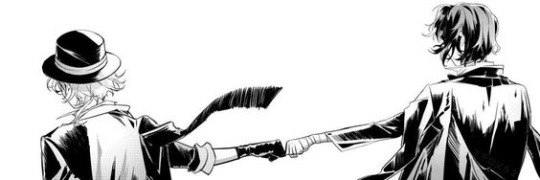
likes Bungo Stray Dogs, Genshin impact, Needy girl overdose , TBHK , cosplay , i play cello., baking , cooking, puppy ,kitten obsession, reading, lain , gilmore girls, cinnamoroll , how to get my husband on my side.
artist MSI , ICP , lana del rey, melanie martinez, itzy , mitski , malice mizer, bôa , the smiths, she wants revenge.
dislikes any cinnamoroll haters, smelly people, closed minded ppl, ppl who cant take jokes, fake ahh people
#bsd#15 dazai#beast dazai#bsd chuuya#bsd dazai#bsd fanart#bsd fyodor#bsd nikolai#bsd sigma#bsd skk#bungou stray dogs dazai#bungou stray dogs#bsd rp#dazai osamu#bungo stray dogs#bsd analysis#intro post#blog intro
24 notes
·
View notes
Text
i think this is the most genuine emotion we've seen from nikolai ever. and the fact he seems unsure about how he's feeling, how it's seemingly contradicting, imo works really well with his character
he's all about saying things that contradict each other and imo, there is always some truth to both sides of what he says
so. here. i think some part of him was happy to be free of his only bond... but then it got overtaken with the part of him that realizes this bond wasn't. like. as constricting as he first thought
it seems that at the end of it all he somehow even WANTED to get that bond running deeper. imo, it was to feed both sides of him - the side that wants to be free can't actually prove his free will if they weren't that close in the first place, they barely interacted before, it's almost like killing any other person. on the other hand, he also genuinely likes fyodor and wants to be closer bc well. he is "perfectly sane". he is, underneath it all, still a person deep down, as much as he might hate that.
when fyodor threatens to take him out in the future he doesn't seem scared, but he also doesn't seem particularly excited i think? (or maybe that's just how he expresses his genuine, non-performative excitement, who knows.) at the same time, he also doesn't seem to want to kill him now, to follow him, like he's keeping it for that new game he was just promised
but then fyodor dies. and he won't get a chance to play it. and in a way, that takes from his freedom too, isn't it? his freedom to choose how his bond with fyodor will be. in a way, fyodor dying took away from his free will.
i truly believe nikolai is. maybe not selfish but certainly self-centered or self-serving enough to be sad over, and forgive me for this analogy, his toy getting broken. I'm certain he's also genuinely sad about his only friend dying, and so gruesomely too, but i wouldn't be surprised if at his core this is what makes him this sad. and i think that also leads to his conflicting emotions about fyodor's death
i also think that thing dazai pointed out about fyodor's lack of trust plays a part in nikolai's grief here. to him, fyodor is the only one who understood him, the only one who made him feel seen, and as far as we know the only person who was important to him. but he probably knew the feeling wasn't mutual. still, this was the nail in the coffin, confirming fyodor never saw him as a friend as well, not even as an ally.
i don't have an actual conclusion here, just speculation on nikolai's internal turmoil and how he might feel now. i really hope (and expect) we will see him again, and i wonder if this event will change anything about him.
i speculated in the past that his eye cover is a symbol of his bond with fyodor. and today, he took it off after fyodor died. i wonder, if the next time we see nikolai, he will still wear it or not (or possibly wear a new one). i guess we'll see!
#bungou stray dogs#fyolai#originally this post was just the first paragraph but then i started rambling in the tags#and as soon as i started i knew i won't be able to keep it short. and look at that! i was right 😭#either way i hope you enjoy. i love him sm. I'm so glad we got to see him today 🖤#bsd spoilers#dan rambles#i should be sleeping..... but nikolai is more important 🧐#(<- was gonna wait for tomorrow to write a full analysis but lacks any patience)
236 notes
·
View notes